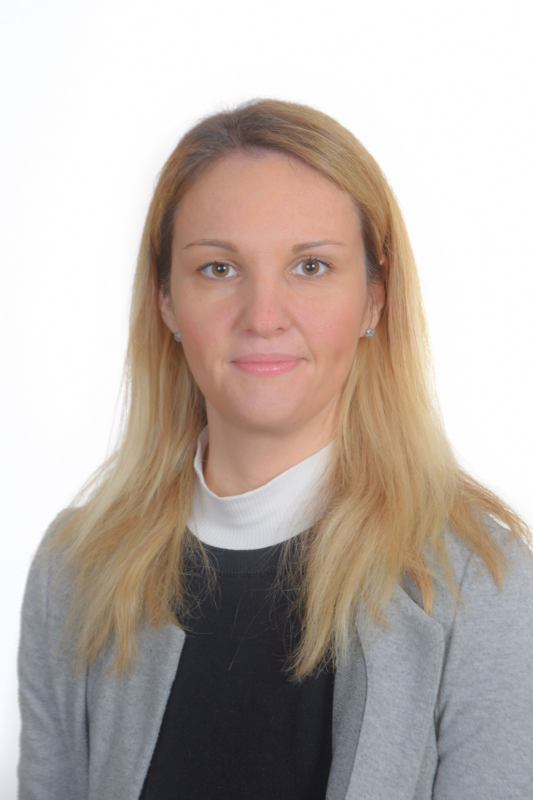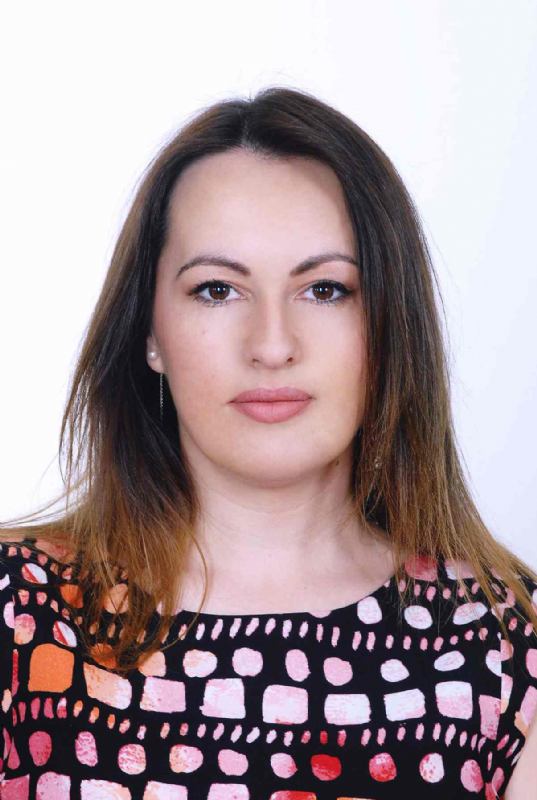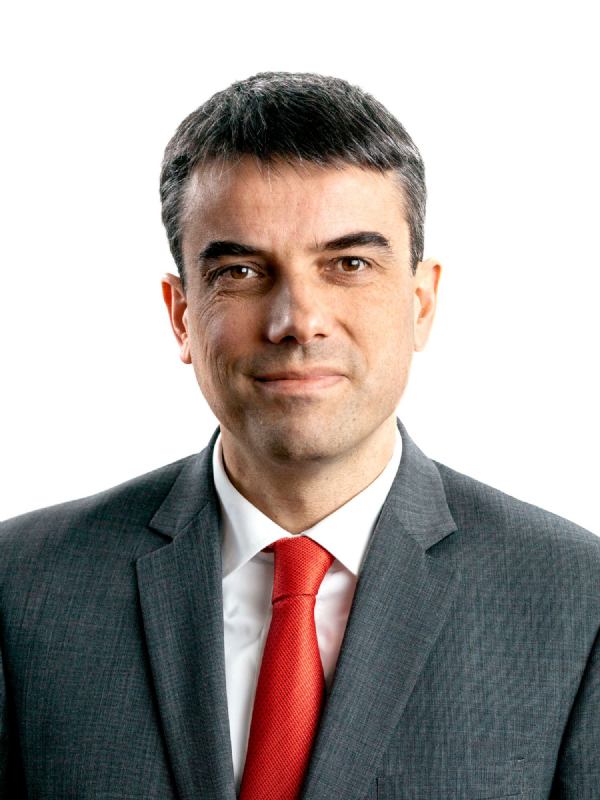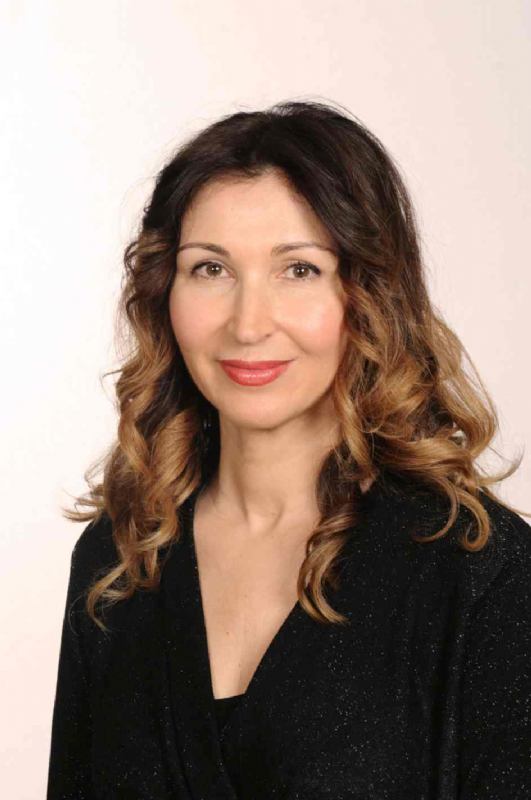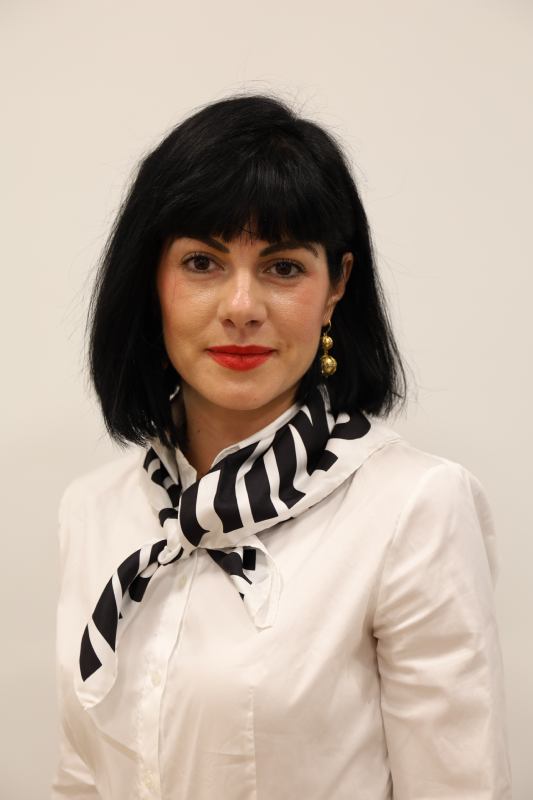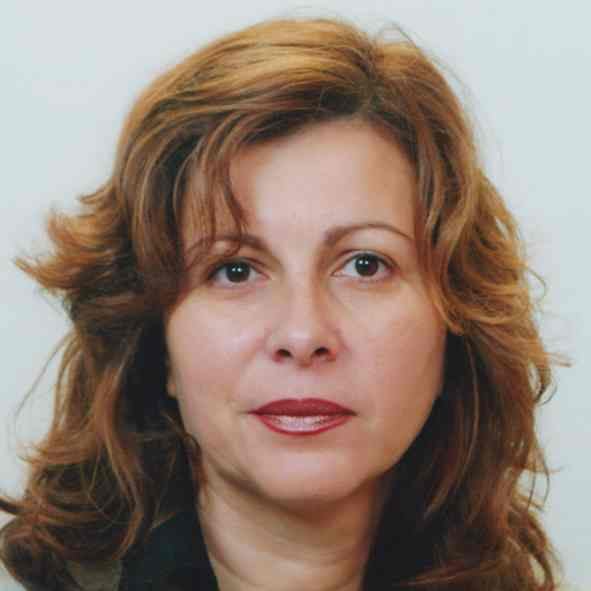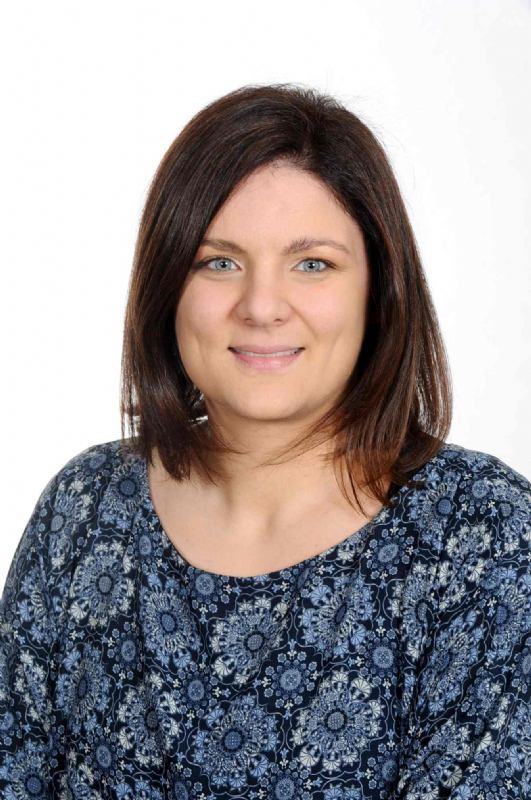List of courses

B level foreign business language courses are introductory level courses, therefore have to differ from the one taken at levels A1 and A2.
B2 and B3 foreign business language courses are successors of B1 (introductory level courses). B1, B2 and B3 are not interchangeable and have to differ from the one taken at levels A1 and A2.
|
Compulsory courses::
|
ECTS
|
Lectures
|
Seminares
|
Practice
|
Type
|
| Accounting (UNDERGRADUATE study program) |
6
|
30
|
0
|
30
|
Compulsory
|
|
To familiarize the students with basic accounting theory and techniques that will enable them to understand the accounting process of a business venture, its financial tracking and to establish the financial position and successfulness in business.
Course content The purpose and nature of accounting. Systems and methods of bookkeeping. Assets, liabilities and owner’s equities. Balance sheet. Effects of business transactions upon the balance sheet. Expenses and revenues. Income statement. Effects of business transactions upon the income statement. Cash flow statement. Statement of changes in stockholders' equity. Notes to financial statements. Journal and trial balance. Work sheet. Adjusting entries. Closing entries. Inventories. Inflation accounting. Chart of accounts. Financial statement analysis. The system of internal control. Accounting information system.
Josip Čičak
, PhD, Assistant Professor
Chair: 86/IV E-mail: josip.cicak@efri.uniri.hr Phone: (051) 355 124 |
|||||
| Bachelor's degree paper (UNDERGRADUATE study program) |
4
|
0
|
45
|
0
|
Compulsory
|
|
|
|||||
| Banking (UNDERGRADUATE study program) |
6
|
45
|
15
|
0
|
Compulsory
|
|
The course analyses the position, role and importance of banks and banking in the economic system. The aim of the course is to introduce students to problems in the founding of banks and banking in the economic system, as well as problems in managing banks, the most significant institutions in financial brokerage.
Course content Definition and types of banks and other financial institutions. Economic importance, history and the development of banks in Croatia and the world. Croatian banking system. Founding and managing a bank. The principles of banking. Regulation and supervision of banks. Bank value. Motives and assignments of the bank management. Supervision, control and relations between banks and the central bank, regulators and other institutions. Bank capital and its’ structure: theory and regulation. Incomes and expenditures in banking. Allocation policy of bank profits. Measuring bank performance. Banks’ core business: gathering of funds domestically and from abroad, investing in credit and other financial assets, neutral or intermediary banking activities and other activities of the bank. Domestic and international payment system (principles, instruments and techniques).
Saša Žiković
, PhD, Full Professor
Chair: 38/II E-mail: sasa.zikovic@efri.uniri.hr Phone: (051) 355 125
Ivan Gržeta
, PhD, Assistant Professor
Chair: 62/III E-mail: ivan.grzeta@efri.uniri.hr Phone: (051) 355 145 |
|||||
| Business Analysis and Planning (UNDERGRADUATE study program) |
6
|
30
|
0
|
30
|
Compulsory
|
|
The course objective is to provide students with knowledge and competences in performance appraisal for decision-making. Analytical approach helps students acquire knowledge of important elements of business activities, their interaction, and their impact on enterprise performance. In addition, the objective is to provide students with basic knowledge and about and techniques of strategic and operational planning as a prerequisite of increasing performance and achieving goals of an enterprise.
Course content Introduction to analysis and planning. Holistic approach to enterprise performance and environment- recent theoretical conception. Analytical methods. Indicators and system of indicators. Ratio analysis. Revenue analysis- sales and assortment. Analysis of costs- volume and structure. Analysis of financial result (profit or loss), Analysis of employment. Long-term assets analysis and capacity. Short-term asset analysis – stock, receivable and cash. Financial analysis. External and internal information. Capital market indicators. Static and dynamic analysis of liquidity. Cash-flow analysis. Leverage analysis. Analysis of efficiency and effectiveness. Creditworthiness assessment. Basic of long- term and short-term planning and forecasting.
Mirjana Grčić Fabić
, PhD, Associate Professor
Chair: 94/IV E-mail: mirjana.grcic.fabic@efri.uniri.hr Phone: (051) 355 103
Antonija Petrlić
, PhD, Assistant Professor
Chair: 82/IV E-mail: antonija.petrlic@efri.uniri.hr Phone: (051) 355-106 |
|||||
| Corporate Finance (UNDERGRADUATE study program) |
6
|
30
|
15
|
15
|
Compulsory
|
|
The main objective of the course is to develop a financial concept, financial way of thinking and decision-making. Students are expected to gain basic theoretical and practical knowledge, especially in the following areas: financing, investing, financial result distribution, liquidity and solvency management, financial analysis, financial planning and compute applications in financial management.
Course content Introduction to business finance. The concept of finance, business finance and financial flow of enterprise. Development and growth of the enterprise - objectives of company and stakeholders. Basic financial concepts of time value of money and relationship between economic flow and cash flow categories. Long-term financial decisions on investing in real investments. Methods of investment evaluation - economic and financial criteria. Forecasting the future cash flows in capital budgeting. Financial analysis - financial indicators and systems. Working capital management. Financial decisions on investing in financial investments. Bond and stock valuation. Yield to maturity for different types of bonds and shares. Quantification of cost of bond and shares financing. The fundamental concept of financial risk. Methods for measuring risk in individual investments. Short-term, middle-long and long-term financing. Capital structure decisions - financing decisions leverage and the weighted average cost of capital, Dividend policy, retained earnings and reserves.
Mira Dimitrić
, PhD, Full Professor
Chair: 70/III E-mail: mira.dimitric@efri.uniri.hr Phone: (051) 355 149
Ivana Tomas Žiković
, PhD, Associate Professor
Chair: 93/IV E-mail: ivana.tomas.zikovic@efri.uniri.hr Phone: (051) 355 194 |
|||||
| Ethics and Economics (UNDERGRADUATE study program) |
3
|
15
|
15
|
0
|
Compulsory
|
|
Course objective:
- to understanding of the relationships between the basic ethical principles and the prevailing goals in business activities. - to master of the basics in ethical science - discriminating between instrumental rationality and moral behaviour - analysing and critically assessing the importance and the role of ethical norms in everyday life, particularly in academic behaviour. - to understand of the role of ethical norms and responsibility in order to prepare students for the challenges and constraints of managing an organization in its societal context Course content - The foundations of ethical theory: deontological and consequentialist approaches. - Rationality and moral constraints: conflicts and overlapping. - Moral agency and moral responsibility. - Free market agency and moral constraints. - Goods, values, preferences. - Are all goods for sale? - Ethics an allocation of goods: - Experimental approach in economics relationships modelling.
Ana Bobinac
, PhD, Associate Professor
Chair: 44/II E-mail: ana.bobinac@efri.uniri.hr Phone: (051) 355 158 |
|||||
| Fundamentals of Entrepreneurship (UNDERGRADUATE study program) |
6
|
30
|
30
|
0
|
Compulsory
|
|
The course objectives are to help students acquire fundamental concepts of entrepreneurship, significance of an enterprise in business environment as well as to acquaint them with key features of entrepreneurial activities in an enterprise.
Mirjana Grčić Fabić
, PhD, Associate Professor
Chair: 94/IV E-mail: mirjana.grcic.fabic@efri.uniri.hr Phone: (051) 355 103
Boštjan Antončič
, PhD, Full Professor
Chair: 94/IV E-mail: bostjan.antoncic@ef.uni-lj.si Phone: (051) 355 103 |
|||||
| Human Resources Management (UNDERGRADUATE study program) |
6
|
30
|
30
|
0
|
Compulsory
|
|
The course objectives are: to help students master the perceptions of the possibilities of designing and developing institutional conditions for the development of human resources; to enable students to perceive the importance of HR Management with the aspect of creating conditions for reaching strategic goals of enterprises and national economies; to enable students to have an easy access to HR management and development in enterprises and public administration.
Course content Social and institutional conditions for developing human resources: population and labour policy; investments in the formation of quality human resources; conditions of labour markets and employment policy; collective negotiating. Management and development of human resources in the company and public administration: concept and importance of human resources function: contents and sub-functions; organization of human resources; job analysis; planning human resources; methods and techniques of planning the number and structures of employees; recruitment; selection and breaking in; performance evaluation and rewarding.
Zoran Ježić
, PhD, Full Professor
Chair: 43 / II E-mail: zoran.jezic@efri.uniri.hr Phone: (051) 355 167 |
|||||
| International Business 1 (UNDERGRADUATE study program) |
4
|
30
|
15
|
0
|
Compulsory
|
|
The purpose of this course is to upgrade students’ theoretical and practical knowledge in organizing and doing business in the international surrounding. In the time of the upward trend of economy, internalization and the growth of the classic international trade, as well as the new forms of international business, it is necessary to get more involved into studying the techniques, organization, methods and forms of the international business. During the study, the students will get informed about the tools and modern methods that can successfully be used in the international business.
Course content Definition of the international business. Terms and relations used in the international business. Motives, purposes and strategies of international business. Organization of the international business. Subjects of the international business – operational effectiveness in international business. International business customs, expressions and rules. Types of international business and activities. Operational effectiveness in the international surrounding. Calculations in the international business practice. Business documents. Contracting the international business. Price contracting. Business risks and risk insurance. Currency business and instruments of payment with foreign countries. Credit business in international business. Bank guaranties. Realization technique of the particular international business.
Tomislav Galović
, PhD, Full Professor
Chair: 82/IV E-mail: tomislav.galovic@efri.uniri.hr Phone: (051) 355 155 |
|||||
| International Economics (UNDERGRADUATE study program) |
6
|
30
|
30
|
0
|
Compulsory
|
|
Provide knowledge on content features of different theories in the field of international economic cooperation. Historical development of key theories gives answers to questions on specific features of international economic development and the question on what the economic benefits of this cooperation are and how they are expressed. Acquiring fundamental knowledge on basic theoretical concepts of international finance, and introducing contemporary structures of change and trends in this field. Presenting the organizational structure and different activities of international economic system institutions in Bretton and post-Bretton era by analyzing the function of WTO and the expansion of European and non-European regional integration, especially the EU, CEFTA, Mediterranean forms of integration, NAFTA etc.
Course content Introduction to international economics; Basic terms and their correlation; Specific features of international exchange; Goals and analysis of international economics; State role and development of economic cooperation with foreign countries; International trade theory; International specialization; Alternative (new) theories and views; International specialization and gains from trade; Theory of international trade policy; Directing exchange in a small open economies; Balance of payments theory and policy; Balance of payments – basic terms and ingredients; Economic and technical equilibrium; Long term equilibrium; Automatic model of adjustments; Theory of trade and growth; Close and open economy; Theory of dominant economy; Theory of peripheral economy; International Economic System; Bretton-Woods system, IMF; World bank (WB); Havana Charter, GATT and WTO; Other international economic institutions and organizations; Regional integration development; Theory of regional integration; Stages and effects of integration; Integration process in Europe; International factors flows; International capital flows; Direct foreign investment; International transfers of technology; World economy development; World production and consumption; World exports and imports Prices and terms of trade; Balance of payments flows.
Vinko Zaninović
, PhD, Associate Professor
Chair: 62/III E-mail: vinko.zaninovic@efri.uniri.hr Phone: (051) 355 162 |
|||||
| International trade strategies (UNDERGRADUATE study program) |
6
|
30
|
30
|
0
|
Compulsory
|
|
Mastering the possibilities of selecting the optimal trade strategy and international strategic orientation based on theoretical and empirical analysis relevant for shaping international trade strategies.
Course content Theoretical analysis of International Trade Strategies: classical, neoclassical and modern theory. Development through Trade and Investment. Optimal protection and optimal interventions. Comparative Advantages and Competitiveness. Elasticity of Supply and Adjustments. Types of International Trade Strategies: Export-led development. Export commodity trade. Import substitution. Export promotion. Mixed strategy. Regional Integration Strategy. International Strategy Orientations: Strongly outward orientation. Moderately outward orientation. Strongly inward orientation. Moderately inward orientation. Forming and implementation of International Trade Strategy: key-sectors criteria; targets, instruments and mechanisms; Effects on Development and Balance of Payments.
Tomislav Galović
, PhD, Full Professor
Chair: 82/IV E-mail: tomislav.galovic@efri.uniri.hr Phone: (051) 355 155 |
|||||
| Macroeconomics 1 (UNDERGRADUATE study program) |
6
|
30
|
30
|
0
|
Compulsory
|
|
Course objectives
The purpose of this course is to help students acquire knowledge in the field of macroeconomic theory and analyses, with a special focus on macroeconomic aggregates and analysis. Course content Gross domestic product (definition, measuring GDP, difference between GDP and GNP, nominal – real GDP, GDP deflator). Equilibrium output (composition of GDP, consumption and saving function, determination of equilibrium output using algebra and graphical approach). Financial markets (money and money market – money supply and demand, money supply components, determinants of interest rate, monetary and credit multiplier - monetary base, monetary base multiplier). IS-LM model (equilibrium on the goods and financial markets, shifts of the IS and LM curves). IS and LM relations together (fiscal policy and ISLM model, monetary policy and IS-LM model, policy mix). The labour market (labour force, wage determination, WS and PS relation, natural rate of unemployment). The Phillips curve (short and long term Phillips curve). AS-AD model (aggregate demand: structure, influencing factors, AD curve; aggregate supply: determinants, AS curve, macroeconomic equilibrium in the short and medium run, effects of monetary expansion and fiscal contraction in the short and medium run). Economic growth (problems, empirics, sources of growth). Saving, Capital Accumulation and Output
Nela Vlahinić
, PhD, Full Professor
Chair: 59/III E-mail: nela.vlahinic@efri.uniri.hr Phone: (051) 355 166
Vesna Buterin
, PhD, Associate Professor
Chair: 75/III E-mail: vesna.buterin@efri.uniri.hr Phone: (051) 355 122
Barbara Fajdetić
, MEcon, Assistant
Chair: 59/III E-mail: barbara.fajdetic@efri.uniri.hr Phone: (051) 355 166
Elma Sinanović
, MEcon, Assistant
Chair: 59/III E-mail: elma.sinanovic@efri.uniri.hr Phone: (051) 355 166 |
|||||
| Macroeconomics 2 (UNDERGRADUATE study program) |
3
|
20
|
10
|
0
|
Compulsory
|
|
Course objectives
The purpose of this course is to introduce students with more challenging level of knowledge in the field of macroeconomic analyses, with a focus on macroeconomic policies especially these which are appropriate for small open economies, as Croatia. Course content Technological progress and economic growth. Expectations (Basic tool). Expectations, consumption and investments. Expectation, GDP and economic policy. Openness in goods and financial markets. Depreciation, trade balance and domestic product. IS-LM model in open economy. Macroeconomic disturbances: depression and recession, high inflation.
Nela Vlahinić
, PhD, Full Professor
Chair: 59/III E-mail: nela.vlahinic@efri.uniri.hr Phone: (051) 355 166
Vesna Buterin
, PhD, Associate Professor
Chair: 75/III E-mail: vesna.buterin@efri.uniri.hr Phone: (051) 355 122
Barbara Fajdetić
, MEcon, Assistant
Chair: 59/III E-mail: barbara.fajdetic@efri.uniri.hr Phone: (051) 355 166
Elma Sinanović
, MEcon, Assistant
Chair: 59/III E-mail: elma.sinanovic@efri.uniri.hr Phone: (051) 355 166 |
|||||
| Management (UNDERGRADUATE study program) |
6
|
30
|
30
|
0
|
Compulsory
|
|
The course presents a thorough and systematic coverage of management theory and practice.
It focuses on the basic roles, skills and functions of management, with special attention to managerial responsibility for effective and efficient achievement of goals. Special attention is given to social responsibility, managerial ethics, and the importance of multi-national organizations. Course content Management: science, theory, and practice; Management and society: external environment, social responsibility and ethics; Global comparative management; Essentials of planning and business strategy; The nature of organizing, organization structure; Human resource, change and conflict management; Motivation; Leadership; The system and process of controlling
Nataša Rupčić
, PhD, Full Professor
Chair: 65/III E-mail: natasa.rupcic@efri.uniri.hr Phone: (051) 355 146 |
|||||
| Marketing (UNDERGRADUATE study program) |
6
|
30
|
30
|
0
|
Compulsory
|
|
Course objective is to provide knowledge on marketing concept evolution, marketing environment forces and marketing mix elements.
Course content Marketing triggers and evolution of marketing. Changes in macro marketing environment. Forces in micro marketing environment. End consumers. Industrial consumers. Market research and MIS. Product fundaments and benefit concept. New product development and product life cycle. Prices and its definition methods. Distribution channels. Physical distribution. Integrated marketing communication. Promotional mix elements. Marketing plan. Marketing in special areas.
Jasmina Dlačić
, PhD, Full Professor
Chair: 34/II E-mail: jasmina.dlacic@efri.uniri.hr Phone: (051) 355 138
Nina Grgurić Čop
, MEcon, Assistant
Chair: 94/IV E-mail: nina.grguric.cop@efri.uniri.hr Phone: 051 355 165 |
|||||
| Mathematical Analysis for Economists (UNDERGRADUATE study program) |
3
|
15
|
0
|
15
|
Compulsory
|
|
The course objectives are to develop the ability of students for usage of mathematical techniques in economics. These techniques are a standard tool of micro and macro economic theories, and represent the basics of empirical economic analysis.
Course content Static Analysis. Introduction to equilibrium analysis. Economic applications. Comparative Static Analysis. Introduction to comparative static. Functions of a single variable. Functions of several variables. Economic applications. Unconstrained Optimisation. Introduction to unconstrained optimisation. Unconstrained optimisation with one choice variable. Unconstrained optimisation with more than one choice variable. Economic applications. Equality-constrained Optimisation. Introduction to equality-constrained optimisation. Optimisation with a single functional equality constraint. Optimisation with multiple functional equality constraints. Economic applications. Dynamic Analysis. Introduction to dynamic analysis. Differential and difference equations. Economic applications.
Alemka Šegota
, PhD, Full Professor
Chair: 37/II E-mail: alemka.segota@efri.uniri.hr Phone: (051) 355 161
Antonija Srok
, Math Assistant
Chair: 89/IV E-mail: antonija.srok@efri.uniri.hr Phone: (051) 355 140 |
|||||
| Mathematics (UNDERGRADUATE study program) |
6
|
30
|
0
|
30
|
Compulsory
|
|
The goal of the course is to challenge students to conjecture, to build arguments and obtain competences and skills in formulating and solving problems, especially in economic fields using comparative statistics to explain different economic issues.
Course content BASICS OF MATHEMATICAL LOGIC (OPERATORS); SETS AND SETS OF NUMBERS. MATRIX ALGEBRA: determinants, Sarruse’s rule, Cramer’s rule for solving equation systems, matrix inverse, etc. FUNCTIONS: definition of function, domain, co-domain, composition, sequences and series. DIFFERENTIATION: techniques of differentiation, the fundamental theorem of calculus, L'Hopital's rule. INTEGRALS: the fundamental theorem, Darboux's summs, integration's rules, partial integration, etc.
Alemka Šegota
, PhD, Full Professor
Chair: 37/II E-mail: alemka.segota@efri.uniri.hr Phone: (051) 355 161
Antonija Srok
, Math Assistant
Chair: 89/IV E-mail: antonija.srok@efri.uniri.hr Phone: (051) 355 140 |
|||||
| Microeconomics 1 (UNDERGRADUATE study program) |
6
|
30
|
30
|
0
|
Compulsory
|
|
The purpose of this course is to develop microeconomic reasoning and analysis. This course attempts to teach students how to “think as an economist”. Students learn the basic microeconomic categories and basic analytical instruments that are necessary for understanding and observing all economic processes. Attention is paid to the assumptions underlying economic theory and to the techniques that provide a deeper understanding of economic phenomena.
Course content Introduction: Markets and Prices; Cost-benefit decision making; Common pitfalls in decision making; Rational consumer choice; Consumer behaviour: consumer preferences, budget constraints, consumer equilibrium; Individual and market demands: individual demand, income and substitution effects, market demand, consumer surplus; Choice under uncertainty and risk; Production: production with one variable input (labour), production with two variable inputs, returns to scale; Production costs: measuring costs, cost in the short run, cost in the long run; Profit maximization and competitive supply.
Ljerka Cerović
, PhD, Full Professor
Chair: 56/III E-mail: ljerka.cerovic@efri.uniri.hr Phone: (051) 355 147
Dario Maradin
, PhD, Associate Professor
Chair: 84/IV E-mail: dario.maradin@efri.uniri.hr Phone: (051) 355 184
Ana Malnar
, MEcon, Assistant
Chair: 56 / 3. kat E-mail: ana.malnar@efri.uniri.hr Phone: (051) 355 147
Nina Ponikvar
, PhD, Associate Professor
Chair: 56 / III E-mail: nina.ponikvar@ef.uni-lj.si Phone: (051) 355 147 |
|||||
| Microeconomics 2 (UNDERGRADUATE study program) |
3
|
20
|
10
|
0
|
Compulsory
|
|
The main objectives of this course are to upgrade students’ theoretical knowledge acquired previously during the course of Microeconomics I, to develop their economic intuition and critical distance for the purpose of deeper understanding economic models and problems as well as to involve students in analysing market structures and competitive strategy through monopoly, monopolistic competition and oligopoly. Special attention will be focused on economics of information, market failure and the role of government.
Course content Perfect competition. Monopoly. Price discrimination. Monopolistic competition. Oligopoly and introduction in game theory; markets form factor inputs. General equilibrium and economic efficiency. Markets with asymmetric information. Market failure: property rights, public goods, and externalities. Government
Ljerka Cerović
, PhD, Full Professor
Chair: 56/III E-mail: ljerka.cerovic@efri.uniri.hr Phone: (051) 355 147
Dario Maradin
, PhD, Associate Professor
Chair: 84/IV E-mail: dario.maradin@efri.uniri.hr Phone: (051) 355 184
Ana Malnar
, MEcon, Assistant
Chair: 56 / 3. kat E-mail: ana.malnar@efri.uniri.hr Phone: (051) 355 147
Nina Ponikvar
, PhD, Associate Professor
Chair: 56 / III E-mail: nina.ponikvar@ef.uni-lj.si Phone: (051) 355 147 |
|||||
| Monetary Economics (UNDERGRADUATE study program) |
6
|
30
|
30
|
0
|
Compulsory
|
|
The objective of the course is to give students theoretical knowledge on money and to show its role in economics and the monetary systems. The course studies the definition and the importance of money, financial institutions issuing money, monetary theories and policies, with special emphasis on the Croatian monetary policy and the functioning of the Croatian Central Bank. The second part of the course defines the monetary (financial) system, i.e. financial institutions, financial market and financial instruments. The main purpose of the course is to give fundamental knowledge on money as a basic category in finance.
Course content Basics of monetary economy: definition of money and money surrogates (substitutes), functions of money, credit money, credit multiplication, money (currency) systems. Money circulation and money supply: monetary aggregates, monetary flows, deposit and credit multiplier, micro and macro multiplication, monetary multiplier, global and secondary liquidity. Monetary theory: money supply and demand, quantitative theory of money, Irving Fisher, Cambridge formulation (Alfred Marshall), J.M. Keynes theory, money theory of Milton Friedman, James Tobin theory, transmission mechanism of monetary theory, money in the open economy (Mundell-Fleming, R. Dornbush). Money and inflation: definition and contents, introduction in the inflation theory, definition and types of inflation, cost-pull inflation and demand-push inflation, causes and effects of inflation, deflation, stagflation, anti-inflationary policies. Banks and monetary instruments: the role and contents of central bank monetary policy, central bank systems and organization of central banks in the world, discount rate policy, reserve requirements, open market policy, selective credit policy, other monetary policy instruments, commercial banking, basic banking operations, active, passive and neutral banking operations. Central bank and banking system in the Republic of Croatia. Monetary independence of the Republic of Croatia: central bank functions, monetary regulation and bank supervision, objectives, tasks and instruments of monetary policy, introduction of Croatian currency, deposit insurance, foreign currency savings, public debt management in the Republic of Croatia. Financial system: financial institutions, financial markets, financial instruments, deposit and non-deposit financial institutions, financial system of the Republic of Croatia. Money in international payments: foreign exchange system and foreign exchange rates, exchange-currency problems of the developed countries and European Monetary Union countries, international monetary system, international liquidity and international payments.
Bojana Olgić Draženović
, PhD, Full Professor
Chair: 69/III E-mail: bojana.olgic.drazenovic@efri.uniri.hr Phone: (051) 355 128
Stella Suljić Nikolaj
, PhD, Assistant Professor
Chair: 69/III E-mail: stella.suljic.nikolaj@efri.uniri.hr Phone: (051) 355 143 |
|||||
| National Economy (UNDERGRADUATE study program) |
6
|
45
|
15
|
0
|
Compulsory
|
|
The course objectives are: to help students master the bases of applied macroeconomics on the paradigm of the national economy (Croatia’s); to provide students with categorical system of scientific discipline and basic methods of economic analyses, especially the method for analyzing economic development; to qualify students for critical analysis and deliberating national economic structure , economic system and economic policies
Course content Basic characteristics of national economy. Human and material factors of production and development: population and work force, the national wealth: natural resources and floating capital, investments, technological progress. De-compensation and aggregate usage of gross domestic product. Structure of Croatian economy according to National Classification of Activities and cross-sector structure. Measurement and indicators of Croatian economic development. Analysis of economic development of Croatia. Regional policy and regional development of Croatia. Elementary characteristics of the international trade of Croatia. Economic policy: types, aims, bearers and instruments. The fiscal policy. Monetary policy. Analyses and policy of developments of primary, manufacturing and service trades (the agriculture, industry, trade, traffic and tourism).
Nada Denona Bogović
, PhD, Full Professor
Chair: 61/III E-mail: nada.denona.bogovic@efri.uniri.hr Phone: (051) 355 142
Zoran Ježić
, PhD, Full Professor
Chair: 43 / II E-mail: zoran.jezic@efri.uniri.hr Phone: (051) 355 167
Antonio Dekanić
, PhD, Assistant
Chair: 45/II E-mail: antonio.dekanic@efri.uniri.hr Phone: (051) 355 165 |
|||||
| Organization (UNDERGRADUATE study program) |
6
|
30
|
30
|
0
|
Compulsory
|
|
As an introductory course to the field of organisational studies, it aims at raising students’ awareness of different approaches to organizations: technical, sociological and economic. Special attention is given to organizational structures types, organizational growth and development of business systems followed by professionalism of functional areas, diversification (divisionalization), needs for organizations restructuring. The course also covers basic legal forms under which organizations operate.
Course content Why study organizations. Organizational studies in its historic context. Technological, human relations and economic aspects of Organization studies. Contingency theory. Factors affecting organizations: strategy, technology, life cycle. External environments. Organizations as complex systems in complex environments (complexity studies). Organizing people. Job design. Time management. Describing organizations. Formal hierarchies. Elements of Organizational structures-Coordination mechanisms. Organizational design. Line structure. Functional structure. Business functions (in the traditional F-type organization and in M. Porter’s value chain). Divisional structure OS. Financial management through profit centers. SBUs. Process structure. BPR. Flexible organizational design. Projects and matrix structure. Network organizations and clusters. The firm as part of the broader economic system. Legal forms of organizations. Organizational and economic implications of corporations. Organizational growth. Mergers, acquisitions and cooperative growth patterns. Organizations in the public sector. Similarities and differences. Methods of organizational analysis and organizational documentation. Problems in visualizing and describing organizations.
Marija Kaštelan Mrak
, PhD, Full Professor
Chair: 68/III E-mail: marija.kastelan.mrak@efri.uniri.hr Phone: (051) 355 163
Danijela Sokolić
, PhD, Full Professor
Chair: 36/II ili 68/III E-mail: danijela.sokolic@efri.uniri.hr Phone: (051) 355 196
Nenad Vretenar
, PhD, Full Professor
Chair: 68/III E-mail: nenad.vretenar@efri.uniri.hr Phone: (051) 355 163 |
|||||
| Principles of Economics (UNDERGRADUATE study program) |
6
|
30
|
30
|
0
|
Compulsory
|
|
Course objectives
The purpose of this course is to acquire fundamental knowledge of economic systems, their functioning and categories: world and national economies and economic entities. Course content Economics as Science. Market & Government. Law of Supply and Demand. The Firm and Production. Wages and the Labour Market. Consumption and Investment. Aggregate Supply and Demand. Money and Commercial Banking. Economic phenomenon: Inflation.
Dunja Škalamera Alilović
, PhD, Associate Professor
Chair: 67/III E-mail: dunja.skalamera-alilovic@efri.uniri.hr Phone: (051) 355 134 |
|||||
| Risk Management (UNDERGRADUATE study program) |
6
|
30
|
30
|
0
|
Compulsory
|
|
The purpose of this course is to introduce students to basic knowledge of risk management – risk identification, measurements methods and protection.
Within the seminar and workshop framework, students obtain competence in methods and techniques used for risk measurement, risk management, decision-making models in business environment of uncertainty and risk. Course content Concept and process of risk management. Probability and uncertainty. Kinds of risks: transferable and non-transferable risks, business and non-business risks. Risk identification, measurement methods and risk analysis. Real investments risks. Financial investments risks. Financial risk. Risk diversification. Decision making process in the risk circumstances – decision criteria, Holder’s metrics. Project risks. Credit, operating and market risks in financial institutions – specific features and measurement methods. Interest-rate risk and Asset-Liability Management model. Standardization and harmonization of risk measurement and risk protection according to EU directives. Techniques of risk measurement: Standard Deviation, VaR method - Variance-Covariance method, Historical Simulation Method, Monte Carlo Simulation Method, Scenario Analysis, Sensitivity Analysis, Models for Foreign Exchange Risk.
Saša Žiković
, PhD, Full Professor
Chair: 38/II E-mail: sasa.zikovic@efri.uniri.hr Phone: (051) 355 125
Ivan Gržeta
, PhD, Assistant Professor
Chair: 62/III E-mail: ivan.grzeta@efri.uniri.hr Phone: (051) 355 145 |
|||||
| Statistical analysis (UNDERGRADUATE study program) |
3
|
20
|
0
|
10
|
Compulsory
|
|
The course deals with applied statistics, therefore it emphasizes those skills that will enable students to independently evaluate and analyze real data through sampling.
Course content Sampling theory: sample and sampling distribution. Descriptive versus inferential statistics; Inferential statistics: Confidence interval estimation of means and proportions. Large and small samples. Choosing the sample size and sample size estimation. Fundamentals of hypothesis testing. Hypothesis test for mean and for proportion. Chi-square statistics. Regression analysis.
Ana Štambuk
, PhD, Full Professor
Chair: 88/IV E-mail: (051) 355 132 Phone: ana.stambuk@efri.uniri.hr |
|||||
| Statistics (UNDERGRADUATE study program) |
6
|
45
|
0
|
15
|
Compulsory
|
|
The course is aimed at developing a specific way of analyzing mass social and economic phenomena. Great stress is laid on applied knowledge and skills, which will give students an understanding of the quantitative approach to economic issues. The students will also learn how to use statistical software (Statistica, SPPS etc.). Upon completion of the course students will be able to choose and implement appropriate statistical methods, carry out statistical analysis and present in detail. Such knowledge will serve as a foundation for a better understanding of professional literature and further education.
Course content Introduction to descriptive statistics analysis: Definition and basic concepts. Statistical data. Data collection, tabulation and graphical presentation methods. Relative frequencies. Frequency distribution. Measures of central tendency. Measures of dispersion, skewness and kurtosis; Regression and correlation analysis: Tabulating and graphing bivariate categorical data. Measures of dependence (correlation coefficient). Simple linear regression. Spearman's Rank correlation. Time-series analysis: Generalities on time series. Index numbers. Graphs and time-series. Trend analysis. Parameter estimation. Smoothing (Moving average). Analysis of seasonality (seasonal adjustment). Basic concepts of probability: Fundamental principle of counting (permutation, variation and combination). Elementary probability: Definition of probability and rules of probability. Discrete and continuous random variables, their distribution, their expected values.
Ana Štambuk
, PhD, Full Professor
Chair: 88/IV E-mail: (051) 355 132 Phone: ana.stambuk@efri.uniri.hr |
|||||
| Strategic Management (UNDERGRADUATE study program) |
6
|
30
|
30
|
0
|
Compulsory
|
|
Upon completion of the course (including the final exam) the students should be able to: Use strategic management terminology; Think strategically while planning and making long-term decisions; Be acquainted with different conceptions on strategic process; Use methodological instruments of strategic management; Analyze study-cases and offer solutions.
Course content Definition of Strategic Management and Business Policy. Time. Historical background of strategy. Benefits of strategic management. Strategic thinking. Schools of strategic management. Styles of strategic management. Process of strategic management: formulation, implementation and control. Mission. Vision. Goals. Levels of strategy. Strategic decision-making process. Strategic planning. Social and ethical responsibility. PESTLE analysis. SWOT analysis. Methods used for strategy formulation: portfolio matrices: Boston Consulting Group, General Electric and Life-cycle matrix. Grand strategy. Strategic clock. Porter's contribution to strategy. Business policy principles. Investment policy. Development policy. Technical progress. Manifestation of technical progress. Product development. Introduction of new product. Life- cycle product theory. Diversification. Technology and growth timing selection. Efficiency technology margins. Conflict management. Strategies to resolve conflict. Strategy and structure. Forecasting. Conjuncture cycles. Top management and board of directors’ relations. Strategic management in multinational companies, small and middle companies. Strategic alliances. Mergers and acquisitions. Strategic changes. Turn-around strategies. Reengineering. Sources for competitive advantage: resource-based theory, core competencies. Outsourcing. Strategic maps. MBTI indicators. Successes and failures in strategy implementation. Crisis management. Benchmarking. Strategic management in non-profit and service organizations. Future of strategy management. Strategic management in Republic of Croatia. Methodology of case-study analysis. Case-study analysis. (cases from Croatia and the world in general)
Luka Samaržija
, PhD, Associate Professor
Chair: 39/II E-mail: luka.samarzija@efri.uniri.hr Phone: (051) 355 160 |
|||||
| Undergraduate Research Methods (UNDERGRADUATE study program) |
3
|
15
|
15
|
0
|
Compulsory
|
|
Course objectives
Students should acquire the basic theoretical and practical knowledge about development, design, technical design and presentation of works at undergraduate level. Course content Research methodology, Research Process, Reviewing the literature, Writing a research proposal, Style of referencing, Presentation skills
Helga Pavlić Skender
, PhD, Full Professor
Chair: 40/II E-mail: helga.pavlic.skender@efri.uniri.hr Phone: (051) 355 137
Petra Adelajda Zaninović
, PhD, Assistant Professor
Chair: 40/II E-mail: petra.adelajda.zaninovic@efri.uniri.hr Phone: (051) 355-137 |
|||||
| Informatics (UNDERGRADUATE study program) |
6
|
30
|
0
|
30
|
Compulsory
|
|
The objective of the course is to give students insight into computer systems and problems related to computerization of firms.
Course content During this course students obtain knowledge and skills for introducing, improving and implementing computers in business applications. Introduction to information systems. Information systems' design. Modern methods and tools in information system development. The manager’s role in information systems implementation. The interaction and priorities in parts of information systems like hardware, software, lifeware and data. Diagrams in computer science. Hardware: Computer's components and performances, computer networks, purchasing of hardware, definition of ICT needs, technological obsolete equipment, computers' purchasing mistakes. Software: Software categorisation, system-software, software developing tools, application software. Programming and testing programs. Software purchasing, contracting outsourcing software development and maintenance. Software errors. Mistakes in outsourcing contracts. Compatibility problems. Information system security. Introduction to spreadsheets and databases. Introduction to Internet and Internet services. Introduction to e-business.
Slavomir Vukmirović
, PhD, Full Professor
Chair: 46/II E-mail: slavomir.vukmirovic@efri.uniri.hr Phone: (051) 355 153
Ivan Uroda
, PhD, Assistant Professor
Chair: 47/II E-mail: ivan.uroda@efri.uniri.hr Phone: (051) 355 151 |
|||||
|
Elective course 1:
|
ECTS
|
Lectures
|
Seminares
|
Practice
|
Type
|
| Basic Business German Language 1 (UNDERGRADUATE study program) |
6
|
30
|
30
|
0
|
Elective
|
|
Kornelija Čakarun
, PhD Senior Lecturer
Chair: 81/IV E-mail: kornelija.cakarun@efri.uniri.hr Phone: (051) 355 157 |
|||||
| Basic Business German Language 2 (UNDERGRADUATE study program) |
4
|
30
|
15
|
0
|
Elective
|
|
Acquisition of language structures needed for communication in frequent everyday and elementary business-related situations
Course content Company presentation: business trips – business meetings – building up cooperation- situational dialogues in a bank. Verbs (verbal mood: indicative, imperative, infinitive, gerund, participle). Introducing business terminology.
Kornelija Čakarun
, PhD Senior Lecturer
Chair: 81/IV E-mail: kornelija.cakarun@efri.uniri.hr Phone: (051) 355 157 |
|||||
| Basic Business German Language 3 (UNDERGRADUATE study program) |
4
|
30
|
15
|
0
|
Elective
|
|
Developing language competence in diverse business-related genres. Acquiring language structures and business terminology necessary for communicating in different business-related contexts. Techniques for decoding authentic business materials. Using business and encyclopedic dictionaries.
Smalltalk. Betriebsrestaurant. Unternehmen. Wirtschaftssektoren. Rechtsformen von Unternehmen: AG, GmbH, Exportauftrag. Zahlungsverkehr. Messeplätze. Stellenangebote. Bewerbung. Firmennachweis. Anfrage. Angebot. Lebenslauf. Vorstellungsgespräche.
Kornelija Čakarun
, PhD Senior Lecturer
Chair: 81/IV E-mail: kornelija.cakarun@efri.uniri.hr Phone: (051) 355 157 |
|||||
| Basic Business Italian Language 1 (UNDERGRADUATE study program) |
6
|
30
|
30
|
0
|
Elective
|
|
Acquisition of elementary language structures, vocabulary and skills needed for communication in frequent everyday and typical business- related situations.
Course content Introducing persons – orientation in space – living space and housing conditions - situational dialogues in a hotel and a restaurant – business trips – inviting guests – people description – free time. Articles, nouns, pronouns and pronominal adjectives, verbs (verb moods: indicative and conditionals; tenses: present, perfect, future) adverbs and prepositions. Basic general vocabulary and introducing business language. |
|||||
| Basic Business Italian Language 2 (UNDERGRADUATE study program) |
4
|
30
|
15
|
0
|
Elective
|
|
Acquisition of language structures needed for communication in frequent everyday and elementary business-related situations
Course content Company presentation: business trips – business meetings – building up cooperation- situational dialogues in a bank. Verbs (verbal mood: indicative, imperative, infinitive, gerund, participle). Introducing business terminology. |
|||||
| Basic Business Italian Language 3 (UNDERGRADUATE study program) |
4
|
30
|
15
|
0
|
Elective
|
|
Developing language competence in diverse business-related genres. Acquiring language structures and business terminology necessary for communicating in different business-related contexts. Techniques for decoding authentic business materials. Using business and encyclopedic dictionaries.
Italia - storia, geografia, cultura. Annunci di lavoro. Colloquio di lavoro. CV. Telefonata. Prenotazioni. Società. Contratto. Trasporto di merci. Fiera. Pubblicità. La cultura degli affari. Lettera di presentazione. Regole d’oro nella comunicazione. La circolare informativa. Incoterms. La presentazione. Lettera d’ordine e risposta all’ordine. |
|||||
| Business English 1 (UNDERGRADUATE study program) |
3
|
20
|
10
|
0
|
Elective
|
|
Developing language competence in diverse business-related genres. Acquiring language structures and business terminology necessary for communicating in different business-related contexts. Techniques for decoding authentic business materials. Using business and encyclopedic dictionaries.
Course content Introduction: Introductory units are focused on developing and upgrading language competence at intermediate level comprising language skills such as reading comprehension, writing, listening and speaking, analyzing the most common mistakes, and useful grammatical structures and vocabulary common in business-related situations (morphology, syntax and semantics). Company structures. Recruitment. Company presentation; writing a company profile. Preparation for writing the Curriculum Vitae and the Letter of Application /Cover Letter. Listening comprehension and analysis of authentic materials. Retailing. Franchising. International Business. Business and Environment. Key vocabulary and analysis of authentic materials. Intercultural differences in the international business context. Key vocabulary and discussion on environmental issues: consumer society, pollutants, and ‘environmentally sustainable development’. Writing: e-mail messages and preparing a questionnaire. Banking. Stock Markets. Key vocabulary, phrases, reading comprehension and understanding financial statements. Describing changes and trends - reading and describing graphs: transitive/intransitive verbs and adverbs, nouns and adjectives that describe ‘slight, great, dramatic’ fall/decrease or rise/increase.
Kristina Kaštelan
, MA Senior Lecturer
Chair: 81/IV E-mail: kristina.kastelan@efri.uniri.hr Phone: (051) 355 133
Kornelija Čakarun
, PhD Senior Lecturer
Chair: 81/IV E-mail: kornelija.cakarun@efri.uniri.hr Phone: (051) 355 157 |
|||||
| Business English 2 (UNDERGRADUATE study program) |
3
|
20
|
10
|
0
|
Elective
|
|
The main course objectives are to implement ESP, upgrade students’ language competence from intermediate to upper-intermediate level in diverse language genres by applying functional approach in communication and business correspondence.
Course content Import Export. Globalization. Key vocabulary: international business organizations (WTO, EFTA, OECD, etc). The European Union. Import and export. Advantages and disadvantages of globalization; – case study: developing presentation skills, expressing and supporting opinions, evaluating ideas with the focus on cultural clashes: minefields and pitfalls we come across while entering into foreign markets such as India, China, etc. Company Performance. SWOT. Annual Reports. Invoices. Bill of Lading: analysis of authentic materials, listening comprehension, surfing the Internet and comparison of companies’ annual reports. Setting Up a Business. Entrepreneurship. Corporate Alliances and Acquisitions. Key vocabulary: public and private limited companies, partnership and sole proprietors. Problems of mergers and acquisitions. Discussion and role play: A meeting – the specific language of meetings, useful expressions. Writing: Minutes of a meeting. Marketing. Product and Corporate Advertising. The Business Media. Key vocabulary. Market research techniques, advertising a product, logo, public relations, publicity, types of business media. Business correspondence. Enquires, complaints and adjustments, orders, short reports, recommendations and summaries.
Kristina Kaštelan
, MA Senior Lecturer
Chair: 81/IV E-mail: kristina.kastelan@efri.uniri.hr Phone: (051) 355 133
Kornelija Čakarun
, PhD Senior Lecturer
Chair: 81/IV E-mail: kornelija.cakarun@efri.uniri.hr Phone: (051) 355 157 |
|||||
| Economics and Policy of Investments (UNDERGRADUATE study program) |
4
|
30
|
10
|
5
|
Elective
|
|
The aim of the course Economy and Policy of Investment is to expand students' knowledge on the terms and environment of purpose serving investment in modern and open market as a basis of economic growth and welfare. Primarily, the course will be oriented on research of investments in terms of national economy functioning.
Course content Notion of investments. Investments according to purpose. Macroeconomic and microeconomic features of investments. Macroeconomic categories of investments. Economic theories and macroeconomic analysis of investments. Savings, investments and economic growth. Public investments. Investment multiplier. Methods and models of investment policy. Capital market. Instruments and institutions of financing investments. Investment analysis
Saša Drezgić
, PhD, Full Professor
Chair: 93/IV E-mail: sasa.drezgic@efri.uniri.hr Phone: (051) 355 129 |
|||||
| Financial Markets and Institutions 1 (UNDERGRADUATE study program) |
4
|
30
|
15
|
0
|
Elective
|
|
Bojana Olgić Draženović
, PhD, Full Professor
Chair: 69/III E-mail: bojana.olgic.drazenovic@efri.uniri.hr Phone: (051) 355 128
Stella Suljić Nikolaj
, PhD, Assistant Professor
Chair: 69/III E-mail: stella.suljic.nikolaj@efri.uniri.hr Phone: (051) 355 143 |
|||||
| Internship (UNDERGRADUATE study program) |
4
|
0
|
45
|
0
|
Elective
|
|
Vesna Buterin
, PhD, Associate Professor
Chair: 75/III E-mail: vesna.buterin@efri.uniri.hr Phone: (051) 355 122 |
|||||
| Public Finance (UNDERGRADUATE study program) |
4
|
30
|
15
|
0
|
Elective
|
|
The objective of the course is to expand students’ knowledge on the terms of mechanism of financing public / governmental needs. For this purpose they ought to be acquainted with the fundamental categories and functions of public finance i.e. public financing, and to gain skills for understanding the entire mechanism and elements of the system of financing public (governmental) needs. To achieve that goal, students should also gain knowledge on different instruments and measures of financing public expenditure programs with special regards to Croatia.
Course content General theory: General considerations on public finances Notion and significance of the public sector The idea of the public needs and public goods and services Theory and analysis of the public revenues Theory and analysis of the public expenditures Methods of the economic valuation of the public expenditure programs Defining of the system of financing public needs Theory of the tax subsystems Theory of the public choice Instruments of financing public expenditure programs Croatian public finances: Features of the system of financing public needs Subsystem of public revenues Subsystem of public expenditures Instruments of financing public needs Borrowing of country and public debt Institution of state auditing Elements of the system of local public financing
Helena Blažić Pečarić
, PhD, Full Professor
Chair: 35/II E-mail: helena.blazic.pecaric@efri.uniri.hr Phone: (051) 355 150
Saša Drezgić
, PhD, Full Professor
Chair: 93/IV E-mail: sasa.drezgic@efri.uniri.hr Phone: (051) 355 129
Maja Grdinić
, PhD, Associate Professor
Chair: 44/II E-mail: maja.grdinic@efri.uniri.hr Phone: (051) 355 114
Kristina Kregar mag. oec.
, MEcon, Assistant
Chair: 44/II E-mail: kristina.kregar@efri.uniri.hr Phone: (051) 355 114 |
|||||
| SME's Accounting (UNDERGRADUATE study program) |
4
|
30
|
7
|
8
|
Elective
|
|
Acquainting students with the specific features of SME’s accounting and accounting standards and regulations for SME’s. Through seminars and practicum students are trained for organizing SME’s accounting.
Course content Small and medium-sized enterprises in context of IASB standards for SMEs adoption – definition and characteristics. Reasons and objectives of IASB standards for SMEs. Small and medium-sized entity financial reporting framework – users of financial statements, qualitative characteristics, elements, recognition, measurement, public accountability. Small and medium-sized entity financial reporting standard – accounting policies and elements of financial statements. Accounting of SMEs in Croatia – legal framework and differences regarding big and listed enterprises. Accounting of physical persons – craftsman (tradesmen and people engaged in freelance occupations who are liable to pay personal income tax on self-employed activities) in system of single bookkeeping – accounting principles and business books. Accounting budgeting, accounting supervision (control and inspection) and accounting analysis of small and medium enterprises. Cost and management accounting in small and medium enterprises – state in Croatia, prerequisites and development possibilities. The special consideration in the audit of small enterprises.
Davor Vašiček
, PhD, Full Professor
Chair: 42/II E-mail: davor.vasicek@efri.uniri.hr Phone: (051) 355 154
Ana Marija Sikirić Simčić
, PhD, Assistant Professor
Chair: 83/IV E-mail: ana.marija.sikiric@efri.uniri.hr Phone: (051) 355 120 |
|||||
| Data Bases (UNDERGRADUATE study program) |
4
|
30
|
0
|
15
|
Elective
|
|
Acquiring knowledge of databases, databases modelling and data normalisation as a prerequisite to access to database.
Course content Databases modelling. Entity-relationship diagrams. Data normalisation. Introducing to Access database. Object developing using wizards and design view. Data interchange from Excel and Access. Query development in SQL and query-by –example method. Macros development and implementation. Programming in VBA language and module implementation. All exercises are in computer labs, where students make the assignments.
Ivan Uroda
, PhD, Assistant Professor
Chair: 47/II E-mail: ivan.uroda@efri.uniri.hr Phone: (051) 355 151 |
|||||
|
Compulsory courses::
|
ECTS
|
Lectures
|
Seminares
|
Practice
|
Type
|
| Fundamentals of Entrepreneurship (UNDERGRADUATE study program) |
6
|
30
|
30
|
0
|
Compulsory
|
|
The course objectives are to help students acquire fundamental concepts of entrepreneurship, significance of an enterprise in business environment as well as to acquaint them with key features of entrepreneurial activities in an enterprise.
Mirjana Grčić Fabić
, PhD, Associate Professor
Chair: 94/IV E-mail: mirjana.grcic.fabic@efri.uniri.hr Phone: (051) 355 103
Boštjan Antončič
, PhD, Full Professor
Chair: 94/IV E-mail: bostjan.antoncic@ef.uni-lj.si Phone: (051) 355 103 |
|||||
| Mathematics (UNDERGRADUATE study program) |
6
|
30
|
0
|
30
|
Compulsory
|
|
The goal of the course is to challenge students to conjecture, to build arguments and obtain competences and skills in formulating and solving problems, especially in economic fields using comparative statistics to explain different economic issues.
Course content BASICS OF MATHEMATICAL LOGIC (OPERATORS); SETS AND SETS OF NUMBERS. MATRIX ALGEBRA: determinants, Sarruse’s rule, Cramer’s rule for solving equation systems, matrix inverse, etc. FUNCTIONS: definition of function, domain, co-domain, composition, sequences and series. DIFFERENTIATION: techniques of differentiation, the fundamental theorem of calculus, L'Hopital's rule. INTEGRALS: the fundamental theorem, Darboux's summs, integration's rules, partial integration, etc.
Alemka Šegota
, PhD, Full Professor
Chair: 37/II E-mail: alemka.segota@efri.uniri.hr Phone: (051) 355 161
Antonija Srok
, Math Assistant
Chair: 89/IV E-mail: antonija.srok@efri.uniri.hr Phone: (051) 355 140 |
|||||
| Principles of Economics (UNDERGRADUATE study program) |
6
|
30
|
30
|
0
|
Compulsory
|
|
Course objectives
The purpose of this course is to acquire fundamental knowledge of economic systems, their functioning and categories: world and national economies and economic entities. Course content Economics as Science. Market & Government. Law of Supply and Demand. The Firm and Production. Wages and the Labour Market. Consumption and Investment. Aggregate Supply and Demand. Money and Commercial Banking. Economic phenomenon: Inflation.
Dunja Škalamera Alilović
, PhD, Associate Professor
Chair: 67/III E-mail: dunja.skalamera-alilovic@efri.uniri.hr Phone: (051) 355 134 |
|||||
| Undergraduate Research Methods (UNDERGRADUATE study program) |
3
|
15
|
15
|
0
|
Compulsory
|
|
Course objectives
Students should acquire the basic theoretical and practical knowledge about development, design, technical design and presentation of works at undergraduate level. Course content Research methodology, Research Process, Reviewing the literature, Writing a research proposal, Style of referencing, Presentation skills
Helga Pavlić Skender
, PhD, Full Professor
Chair: 40/II E-mail: helga.pavlic.skender@efri.uniri.hr Phone: (051) 355 137
Petra Adelajda Zaninović
, PhD, Assistant Professor
Chair: 40/II E-mail: petra.adelajda.zaninovic@efri.uniri.hr Phone: (051) 355-137 |
|||||
| Informatics (UNDERGRADUATE study program) |
6
|
30
|
0
|
30
|
Compulsory
|
|
The objective of the course is to give students insight into computer systems and problems related to computerization of firms.
Course content During this course students obtain knowledge and skills for introducing, improving and implementing computers in business applications. Introduction to information systems. Information systems' design. Modern methods and tools in information system development. The manager’s role in information systems implementation. The interaction and priorities in parts of information systems like hardware, software, lifeware and data. Diagrams in computer science. Hardware: Computer's components and performances, computer networks, purchasing of hardware, definition of ICT needs, technological obsolete equipment, computers' purchasing mistakes. Software: Software categorisation, system-software, software developing tools, application software. Programming and testing programs. Software purchasing, contracting outsourcing software development and maintenance. Software errors. Mistakes in outsourcing contracts. Compatibility problems. Information system security. Introduction to spreadsheets and databases. Introduction to Internet and Internet services. Introduction to e-business.
Slavomir Vukmirović
, PhD, Full Professor
Chair: 46/II E-mail: slavomir.vukmirovic@efri.uniri.hr Phone: (051) 355 153
Ivan Uroda
, PhD, Assistant Professor
Chair: 47/II E-mail: ivan.uroda@efri.uniri.hr Phone: (051) 355 151 |
|||||
|
Elective course 1:
|
ECTS
|
Lectures
|
Seminares
|
Practice
|
Type
|
| Business English 1 (UNDERGRADUATE study program) |
3
|
20
|
10
|
0
|
Elective
|
|
Developing language competence in diverse business-related genres. Acquiring language structures and business terminology necessary for communicating in different business-related contexts. Techniques for decoding authentic business materials. Using business and encyclopedic dictionaries.
Course content Introduction: Introductory units are focused on developing and upgrading language competence at intermediate level comprising language skills such as reading comprehension, writing, listening and speaking, analyzing the most common mistakes, and useful grammatical structures and vocabulary common in business-related situations (morphology, syntax and semantics). Company structures. Recruitment. Company presentation; writing a company profile. Preparation for writing the Curriculum Vitae and the Letter of Application /Cover Letter. Listening comprehension and analysis of authentic materials. Retailing. Franchising. International Business. Business and Environment. Key vocabulary and analysis of authentic materials. Intercultural differences in the international business context. Key vocabulary and discussion on environmental issues: consumer society, pollutants, and ‘environmentally sustainable development’. Writing: e-mail messages and preparing a questionnaire. Banking. Stock Markets. Key vocabulary, phrases, reading comprehension and understanding financial statements. Describing changes and trends - reading and describing graphs: transitive/intransitive verbs and adverbs, nouns and adjectives that describe ‘slight, great, dramatic’ fall/decrease or rise/increase.
Kristina Kaštelan
, MA Senior Lecturer
Chair: 81/IV E-mail: kristina.kastelan@efri.uniri.hr Phone: (051) 355 133
Kornelija Čakarun
, PhD Senior Lecturer
Chair: 81/IV E-mail: kornelija.cakarun@efri.uniri.hr Phone: (051) 355 157 |
|||||
|
Compulsory courses::
|
ECTS
|
Lectures
|
Seminares
|
Practice
|
Type
|
| Ethics and Economics (UNDERGRADUATE study program) |
3
|
15
|
15
|
0
|
Compulsory
|
|
Course objective:
- to understanding of the relationships between the basic ethical principles and the prevailing goals in business activities. - to master of the basics in ethical science - discriminating between instrumental rationality and moral behaviour - analysing and critically assessing the importance and the role of ethical norms in everyday life, particularly in academic behaviour. - to understand of the role of ethical norms and responsibility in order to prepare students for the challenges and constraints of managing an organization in its societal context Course content - The foundations of ethical theory: deontological and consequentialist approaches. - Rationality and moral constraints: conflicts and overlapping. - Moral agency and moral responsibility. - Free market agency and moral constraints. - Goods, values, preferences. - Are all goods for sale? - Ethics an allocation of goods: - Experimental approach in economics relationships modelling.
Ana Bobinac
, PhD, Associate Professor
Chair: 44/II E-mail: ana.bobinac@efri.uniri.hr Phone: (051) 355 158 |
|||||
| Marketing (UNDERGRADUATE study program) |
6
|
30
|
30
|
0
|
Compulsory
|
|
Course objective is to provide knowledge on marketing concept evolution, marketing environment forces and marketing mix elements.
Course content Marketing triggers and evolution of marketing. Changes in macro marketing environment. Forces in micro marketing environment. End consumers. Industrial consumers. Market research and MIS. Product fundaments and benefit concept. New product development and product life cycle. Prices and its definition methods. Distribution channels. Physical distribution. Integrated marketing communication. Promotional mix elements. Marketing plan. Marketing in special areas.
Jasmina Dlačić
, PhD, Full Professor
Chair: 34/II E-mail: jasmina.dlacic@efri.uniri.hr Phone: (051) 355 138
Nina Grgurić Čop
, MEcon, Assistant
Chair: 94/IV E-mail: nina.grguric.cop@efri.uniri.hr Phone: 051 355 165 |
|||||
| Microeconomics 1 (UNDERGRADUATE study program) |
6
|
30
|
30
|
0
|
Compulsory
|
|
The purpose of this course is to develop microeconomic reasoning and analysis. This course attempts to teach students how to “think as an economist”. Students learn the basic microeconomic categories and basic analytical instruments that are necessary for understanding and observing all economic processes. Attention is paid to the assumptions underlying economic theory and to the techniques that provide a deeper understanding of economic phenomena.
Course content Introduction: Markets and Prices; Cost-benefit decision making; Common pitfalls in decision making; Rational consumer choice; Consumer behaviour: consumer preferences, budget constraints, consumer equilibrium; Individual and market demands: individual demand, income and substitution effects, market demand, consumer surplus; Choice under uncertainty and risk; Production: production with one variable input (labour), production with two variable inputs, returns to scale; Production costs: measuring costs, cost in the short run, cost in the long run; Profit maximization and competitive supply.
Ljerka Cerović
, PhD, Full Professor
Chair: 56/III E-mail: ljerka.cerovic@efri.uniri.hr Phone: (051) 355 147
Dario Maradin
, PhD, Associate Professor
Chair: 84/IV E-mail: dario.maradin@efri.uniri.hr Phone: (051) 355 184
Ana Malnar
, MEcon, Assistant
Chair: 56 / 3. kat E-mail: ana.malnar@efri.uniri.hr Phone: (051) 355 147
Nina Ponikvar
, PhD, Associate Professor
Chair: 56 / III E-mail: nina.ponikvar@ef.uni-lj.si Phone: (051) 355 147 |
|||||
| Organization (UNDERGRADUATE study program) |
6
|
30
|
30
|
0
|
Compulsory
|
|
As an introductory course to the field of organisational studies, it aims at raising students’ awareness of different approaches to organizations: technical, sociological and economic. Special attention is given to organizational structures types, organizational growth and development of business systems followed by professionalism of functional areas, diversification (divisionalization), needs for organizations restructuring. The course also covers basic legal forms under which organizations operate.
Course content Why study organizations. Organizational studies in its historic context. Technological, human relations and economic aspects of Organization studies. Contingency theory. Factors affecting organizations: strategy, technology, life cycle. External environments. Organizations as complex systems in complex environments (complexity studies). Organizing people. Job design. Time management. Describing organizations. Formal hierarchies. Elements of Organizational structures-Coordination mechanisms. Organizational design. Line structure. Functional structure. Business functions (in the traditional F-type organization and in M. Porter’s value chain). Divisional structure OS. Financial management through profit centers. SBUs. Process structure. BPR. Flexible organizational design. Projects and matrix structure. Network organizations and clusters. The firm as part of the broader economic system. Legal forms of organizations. Organizational and economic implications of corporations. Organizational growth. Mergers, acquisitions and cooperative growth patterns. Organizations in the public sector. Similarities and differences. Methods of organizational analysis and organizational documentation. Problems in visualizing and describing organizations.
Marija Kaštelan Mrak
, PhD, Full Professor
Chair: 68/III E-mail: marija.kastelan.mrak@efri.uniri.hr Phone: (051) 355 163
Danijela Sokolić
, PhD, Full Professor
Chair: 36/II ili 68/III E-mail: danijela.sokolic@efri.uniri.hr Phone: (051) 355 196
Nenad Vretenar
, PhD, Full Professor
Chair: 68/III E-mail: nenad.vretenar@efri.uniri.hr Phone: (051) 355 163 |
|||||
| Statistics (UNDERGRADUATE study program) |
6
|
45
|
0
|
15
|
Compulsory
|
|
The course is aimed at developing a specific way of analyzing mass social and economic phenomena. Great stress is laid on applied knowledge and skills, which will give students an understanding of the quantitative approach to economic issues. The students will also learn how to use statistical software (Statistica, SPPS etc.). Upon completion of the course students will be able to choose and implement appropriate statistical methods, carry out statistical analysis and present in detail. Such knowledge will serve as a foundation for a better understanding of professional literature and further education.
Course content Introduction to descriptive statistics analysis: Definition and basic concepts. Statistical data. Data collection, tabulation and graphical presentation methods. Relative frequencies. Frequency distribution. Measures of central tendency. Measures of dispersion, skewness and kurtosis; Regression and correlation analysis: Tabulating and graphing bivariate categorical data. Measures of dependence (correlation coefficient). Simple linear regression. Spearman's Rank correlation. Time-series analysis: Generalities on time series. Index numbers. Graphs and time-series. Trend analysis. Parameter estimation. Smoothing (Moving average). Analysis of seasonality (seasonal adjustment). Basic concepts of probability: Fundamental principle of counting (permutation, variation and combination). Elementary probability: Definition of probability and rules of probability. Discrete and continuous random variables, their distribution, their expected values.
Ana Štambuk
, PhD, Full Professor
Chair: 88/IV E-mail: (051) 355 132 Phone: ana.stambuk@efri.uniri.hr |
|||||
|
Elective course 1:
|
ECTS
|
Lectures
|
Seminares
|
Practice
|
Type
|
| Business English 2 (UNDERGRADUATE study program) |
3
|
20
|
10
|
0
|
Elective
|
|
The main course objectives are to implement ESP, upgrade students’ language competence from intermediate to upper-intermediate level in diverse language genres by applying functional approach in communication and business correspondence.
Course content Import Export. Globalization. Key vocabulary: international business organizations (WTO, EFTA, OECD, etc). The European Union. Import and export. Advantages and disadvantages of globalization; – case study: developing presentation skills, expressing and supporting opinions, evaluating ideas with the focus on cultural clashes: minefields and pitfalls we come across while entering into foreign markets such as India, China, etc. Company Performance. SWOT. Annual Reports. Invoices. Bill of Lading: analysis of authentic materials, listening comprehension, surfing the Internet and comparison of companies’ annual reports. Setting Up a Business. Entrepreneurship. Corporate Alliances and Acquisitions. Key vocabulary: public and private limited companies, partnership and sole proprietors. Problems of mergers and acquisitions. Discussion and role play: A meeting – the specific language of meetings, useful expressions. Writing: Minutes of a meeting. Marketing. Product and Corporate Advertising. The Business Media. Key vocabulary. Market research techniques, advertising a product, logo, public relations, publicity, types of business media. Business correspondence. Enquires, complaints and adjustments, orders, short reports, recommendations and summaries.
Kristina Kaštelan
, MA Senior Lecturer
Chair: 81/IV E-mail: kristina.kastelan@efri.uniri.hr Phone: (051) 355 133
Kornelija Čakarun
, PhD Senior Lecturer
Chair: 81/IV E-mail: kornelija.cakarun@efri.uniri.hr Phone: (051) 355 157 |
|||||
|
Compulsory courses::
|
ECTS
|
Lectures
|
Seminares
|
Practice
|
Type
|
| Accounting (UNDERGRADUATE study program) |
6
|
30
|
0
|
30
|
Compulsory
|
|
To familiarize the students with basic accounting theory and techniques that will enable them to understand the accounting process of a business venture, its financial tracking and to establish the financial position and successfulness in business.
Course content The purpose and nature of accounting. Systems and methods of bookkeeping. Assets, liabilities and owner’s equities. Balance sheet. Effects of business transactions upon the balance sheet. Expenses and revenues. Income statement. Effects of business transactions upon the income statement. Cash flow statement. Statement of changes in stockholders' equity. Notes to financial statements. Journal and trial balance. Work sheet. Adjusting entries. Closing entries. Inventories. Inflation accounting. Chart of accounts. Financial statement analysis. The system of internal control. Accounting information system.
Josip Čičak
, PhD, Assistant Professor
Chair: 86/IV E-mail: josip.cicak@efri.uniri.hr Phone: (051) 355 124 |
|||||
| Macroeconomics 1 (UNDERGRADUATE study program) |
6
|
30
|
30
|
0
|
Compulsory
|
|
Course objectives
The purpose of this course is to help students acquire knowledge in the field of macroeconomic theory and analyses, with a special focus on macroeconomic aggregates and analysis. Course content Gross domestic product (definition, measuring GDP, difference between GDP and GNP, nominal – real GDP, GDP deflator). Equilibrium output (composition of GDP, consumption and saving function, determination of equilibrium output using algebra and graphical approach). Financial markets (money and money market – money supply and demand, money supply components, determinants of interest rate, monetary and credit multiplier - monetary base, monetary base multiplier). IS-LM model (equilibrium on the goods and financial markets, shifts of the IS and LM curves). IS and LM relations together (fiscal policy and ISLM model, monetary policy and IS-LM model, policy mix). The labour market (labour force, wage determination, WS and PS relation, natural rate of unemployment). The Phillips curve (short and long term Phillips curve). AS-AD model (aggregate demand: structure, influencing factors, AD curve; aggregate supply: determinants, AS curve, macroeconomic equilibrium in the short and medium run, effects of monetary expansion and fiscal contraction in the short and medium run). Economic growth (problems, empirics, sources of growth). Saving, Capital Accumulation and Output
Nela Vlahinić
, PhD, Full Professor
Chair: 59/III E-mail: nela.vlahinic@efri.uniri.hr Phone: (051) 355 166
Vesna Buterin
, PhD, Associate Professor
Chair: 75/III E-mail: vesna.buterin@efri.uniri.hr Phone: (051) 355 122
Barbara Fajdetić
, MEcon, Assistant
Chair: 59/III E-mail: barbara.fajdetic@efri.uniri.hr Phone: (051) 355 166
Elma Sinanović
, MEcon, Assistant
Chair: 59/III E-mail: elma.sinanovic@efri.uniri.hr Phone: (051) 355 166 |
|||||
| Management (UNDERGRADUATE study program) |
6
|
30
|
30
|
0
|
Compulsory
|
|
The course presents a thorough and systematic coverage of management theory and practice.
It focuses on the basic roles, skills and functions of management, with special attention to managerial responsibility for effective and efficient achievement of goals. Special attention is given to social responsibility, managerial ethics, and the importance of multi-national organizations. Course content Management: science, theory, and practice; Management and society: external environment, social responsibility and ethics; Global comparative management; Essentials of planning and business strategy; The nature of organizing, organization structure; Human resource, change and conflict management; Motivation; Leadership; The system and process of controlling
Nataša Rupčić
, PhD, Full Professor
Chair: 65/III E-mail: natasa.rupcic@efri.uniri.hr Phone: (051) 355 146 |
|||||
| Microeconomics 2 (UNDERGRADUATE study program) |
3
|
20
|
10
|
0
|
Compulsory
|
|
The main objectives of this course are to upgrade students’ theoretical knowledge acquired previously during the course of Microeconomics I, to develop their economic intuition and critical distance for the purpose of deeper understanding economic models and problems as well as to involve students in analysing market structures and competitive strategy through monopoly, monopolistic competition and oligopoly. Special attention will be focused on economics of information, market failure and the role of government.
Course content Perfect competition. Monopoly. Price discrimination. Monopolistic competition. Oligopoly and introduction in game theory; markets form factor inputs. General equilibrium and economic efficiency. Markets with asymmetric information. Market failure: property rights, public goods, and externalities. Government
Ljerka Cerović
, PhD, Full Professor
Chair: 56/III E-mail: ljerka.cerovic@efri.uniri.hr Phone: (051) 355 147
Dario Maradin
, PhD, Associate Professor
Chair: 84/IV E-mail: dario.maradin@efri.uniri.hr Phone: (051) 355 184
Ana Malnar
, MEcon, Assistant
Chair: 56 / 3. kat E-mail: ana.malnar@efri.uniri.hr Phone: (051) 355 147
Nina Ponikvar
, PhD, Associate Professor
Chair: 56 / III E-mail: nina.ponikvar@ef.uni-lj.si Phone: (051) 355 147 |
|||||
| Statistical analysis (UNDERGRADUATE study program) |
3
|
20
|
0
|
10
|
Compulsory
|
|
The course deals with applied statistics, therefore it emphasizes those skills that will enable students to independently evaluate and analyze real data through sampling.
Course content Sampling theory: sample and sampling distribution. Descriptive versus inferential statistics; Inferential statistics: Confidence interval estimation of means and proportions. Large and small samples. Choosing the sample size and sample size estimation. Fundamentals of hypothesis testing. Hypothesis test for mean and for proportion. Chi-square statistics. Regression analysis.
Ana Štambuk
, PhD, Full Professor
Chair: 88/IV E-mail: (051) 355 132 Phone: ana.stambuk@efri.uniri.hr |
|||||
|
Elective course 1:
|
ECTS
|
Lectures
|
Seminares
|
Practice
|
Type
|
| Basic Business German Language 1 (UNDERGRADUATE study program) |
6
|
30
|
30
|
0
|
Elective
|
|
Kornelija Čakarun
, PhD Senior Lecturer
Chair: 81/IV E-mail: kornelija.cakarun@efri.uniri.hr Phone: (051) 355 157 |
|||||
| Basic Business Italian Language 1 (UNDERGRADUATE study program) |
6
|
30
|
30
|
0
|
Elective
|
|
Acquisition of elementary language structures, vocabulary and skills needed for communication in frequent everyday and typical business- related situations.
Course content Introducing persons – orientation in space – living space and housing conditions - situational dialogues in a hotel and a restaurant – business trips – inviting guests – people description – free time. Articles, nouns, pronouns and pronominal adjectives, verbs (verb moods: indicative and conditionals; tenses: present, perfect, future) adverbs and prepositions. Basic general vocabulary and introducing business language. |
|||||
|
Compulsory courses::
|
ECTS
|
Lectures
|
Seminares
|
Practice
|
Type
|
| International Economics (UNDERGRADUATE study program) |
6
|
30
|
30
|
0
|
Compulsory
|
|
Provide knowledge on content features of different theories in the field of international economic cooperation. Historical development of key theories gives answers to questions on specific features of international economic development and the question on what the economic benefits of this cooperation are and how they are expressed. Acquiring fundamental knowledge on basic theoretical concepts of international finance, and introducing contemporary structures of change and trends in this field. Presenting the organizational structure and different activities of international economic system institutions in Bretton and post-Bretton era by analyzing the function of WTO and the expansion of European and non-European regional integration, especially the EU, CEFTA, Mediterranean forms of integration, NAFTA etc.
Course content Introduction to international economics; Basic terms and their correlation; Specific features of international exchange; Goals and analysis of international economics; State role and development of economic cooperation with foreign countries; International trade theory; International specialization; Alternative (new) theories and views; International specialization and gains from trade; Theory of international trade policy; Directing exchange in a small open economies; Balance of payments theory and policy; Balance of payments – basic terms and ingredients; Economic and technical equilibrium; Long term equilibrium; Automatic model of adjustments; Theory of trade and growth; Close and open economy; Theory of dominant economy; Theory of peripheral economy; International Economic System; Bretton-Woods system, IMF; World bank (WB); Havana Charter, GATT and WTO; Other international economic institutions and organizations; Regional integration development; Theory of regional integration; Stages and effects of integration; Integration process in Europe; International factors flows; International capital flows; Direct foreign investment; International transfers of technology; World economy development; World production and consumption; World exports and imports Prices and terms of trade; Balance of payments flows.
Vinko Zaninović
, PhD, Associate Professor
Chair: 62/III E-mail: vinko.zaninovic@efri.uniri.hr Phone: (051) 355 162 |
|||||
| International trade strategies (UNDERGRADUATE study program) |
6
|
30
|
30
|
0
|
Compulsory
|
|
Mastering the possibilities of selecting the optimal trade strategy and international strategic orientation based on theoretical and empirical analysis relevant for shaping international trade strategies.
Course content Theoretical analysis of International Trade Strategies: classical, neoclassical and modern theory. Development through Trade and Investment. Optimal protection and optimal interventions. Comparative Advantages and Competitiveness. Elasticity of Supply and Adjustments. Types of International Trade Strategies: Export-led development. Export commodity trade. Import substitution. Export promotion. Mixed strategy. Regional Integration Strategy. International Strategy Orientations: Strongly outward orientation. Moderately outward orientation. Strongly inward orientation. Moderately inward orientation. Forming and implementation of International Trade Strategy: key-sectors criteria; targets, instruments and mechanisms; Effects on Development and Balance of Payments.
Tomislav Galović
, PhD, Full Professor
Chair: 82/IV E-mail: tomislav.galovic@efri.uniri.hr Phone: (051) 355 155 |
|||||
| Macroeconomics 2 (UNDERGRADUATE study program) |
3
|
20
|
10
|
0
|
Compulsory
|
|
Course objectives
The purpose of this course is to introduce students with more challenging level of knowledge in the field of macroeconomic analyses, with a focus on macroeconomic policies especially these which are appropriate for small open economies, as Croatia. Course content Technological progress and economic growth. Expectations (Basic tool). Expectations, consumption and investments. Expectation, GDP and economic policy. Openness in goods and financial markets. Depreciation, trade balance and domestic product. IS-LM model in open economy. Macroeconomic disturbances: depression and recession, high inflation.
Nela Vlahinić
, PhD, Full Professor
Chair: 59/III E-mail: nela.vlahinic@efri.uniri.hr Phone: (051) 355 166
Vesna Buterin
, PhD, Associate Professor
Chair: 75/III E-mail: vesna.buterin@efri.uniri.hr Phone: (051) 355 122
Barbara Fajdetić
, MEcon, Assistant
Chair: 59/III E-mail: barbara.fajdetic@efri.uniri.hr Phone: (051) 355 166
Elma Sinanović
, MEcon, Assistant
Chair: 59/III E-mail: elma.sinanovic@efri.uniri.hr Phone: (051) 355 166 |
|||||
| Mathematical Analysis for Economists (UNDERGRADUATE study program) |
3
|
15
|
0
|
15
|
Compulsory
|
|
The course objectives are to develop the ability of students for usage of mathematical techniques in economics. These techniques are a standard tool of micro and macro economic theories, and represent the basics of empirical economic analysis.
Course content Static Analysis. Introduction to equilibrium analysis. Economic applications. Comparative Static Analysis. Introduction to comparative static. Functions of a single variable. Functions of several variables. Economic applications. Unconstrained Optimisation. Introduction to unconstrained optimisation. Unconstrained optimisation with one choice variable. Unconstrained optimisation with more than one choice variable. Economic applications. Equality-constrained Optimisation. Introduction to equality-constrained optimisation. Optimisation with a single functional equality constraint. Optimisation with multiple functional equality constraints. Economic applications. Dynamic Analysis. Introduction to dynamic analysis. Differential and difference equations. Economic applications.
Alemka Šegota
, PhD, Full Professor
Chair: 37/II E-mail: alemka.segota@efri.uniri.hr Phone: (051) 355 161
Antonija Srok
, Math Assistant
Chair: 89/IV E-mail: antonija.srok@efri.uniri.hr Phone: (051) 355 140 |
|||||
| Monetary Economics (UNDERGRADUATE study program) |
6
|
30
|
30
|
0
|
Compulsory
|
|
The objective of the course is to give students theoretical knowledge on money and to show its role in economics and the monetary systems. The course studies the definition and the importance of money, financial institutions issuing money, monetary theories and policies, with special emphasis on the Croatian monetary policy and the functioning of the Croatian Central Bank. The second part of the course defines the monetary (financial) system, i.e. financial institutions, financial market and financial instruments. The main purpose of the course is to give fundamental knowledge on money as a basic category in finance.
Course content Basics of monetary economy: definition of money and money surrogates (substitutes), functions of money, credit money, credit multiplication, money (currency) systems. Money circulation and money supply: monetary aggregates, monetary flows, deposit and credit multiplier, micro and macro multiplication, monetary multiplier, global and secondary liquidity. Monetary theory: money supply and demand, quantitative theory of money, Irving Fisher, Cambridge formulation (Alfred Marshall), J.M. Keynes theory, money theory of Milton Friedman, James Tobin theory, transmission mechanism of monetary theory, money in the open economy (Mundell-Fleming, R. Dornbush). Money and inflation: definition and contents, introduction in the inflation theory, definition and types of inflation, cost-pull inflation and demand-push inflation, causes and effects of inflation, deflation, stagflation, anti-inflationary policies. Banks and monetary instruments: the role and contents of central bank monetary policy, central bank systems and organization of central banks in the world, discount rate policy, reserve requirements, open market policy, selective credit policy, other monetary policy instruments, commercial banking, basic banking operations, active, passive and neutral banking operations. Central bank and banking system in the Republic of Croatia. Monetary independence of the Republic of Croatia: central bank functions, monetary regulation and bank supervision, objectives, tasks and instruments of monetary policy, introduction of Croatian currency, deposit insurance, foreign currency savings, public debt management in the Republic of Croatia. Financial system: financial institutions, financial markets, financial instruments, deposit and non-deposit financial institutions, financial system of the Republic of Croatia. Money in international payments: foreign exchange system and foreign exchange rates, exchange-currency problems of the developed countries and European Monetary Union countries, international monetary system, international liquidity and international payments.
Bojana Olgić Draženović
, PhD, Full Professor
Chair: 69/III E-mail: bojana.olgic.drazenovic@efri.uniri.hr Phone: (051) 355 128
Stella Suljić Nikolaj
, PhD, Assistant Professor
Chair: 69/III E-mail: stella.suljic.nikolaj@efri.uniri.hr Phone: (051) 355 143 |
|||||
| National Economy (UNDERGRADUATE study program) |
6
|
45
|
15
|
0
|
Compulsory
|
|
The course objectives are: to help students master the bases of applied macroeconomics on the paradigm of the national economy (Croatia’s); to provide students with categorical system of scientific discipline and basic methods of economic analyses, especially the method for analyzing economic development; to qualify students for critical analysis and deliberating national economic structure , economic system and economic policies
Course content Basic characteristics of national economy. Human and material factors of production and development: population and work force, the national wealth: natural resources and floating capital, investments, technological progress. De-compensation and aggregate usage of gross domestic product. Structure of Croatian economy according to National Classification of Activities and cross-sector structure. Measurement and indicators of Croatian economic development. Analysis of economic development of Croatia. Regional policy and regional development of Croatia. Elementary characteristics of the international trade of Croatia. Economic policy: types, aims, bearers and instruments. The fiscal policy. Monetary policy. Analyses and policy of developments of primary, manufacturing and service trades (the agriculture, industry, trade, traffic and tourism).
Nada Denona Bogović
, PhD, Full Professor
Chair: 61/III E-mail: nada.denona.bogovic@efri.uniri.hr Phone: (051) 355 142
Zoran Ježić
, PhD, Full Professor
Chair: 43 / II E-mail: zoran.jezic@efri.uniri.hr Phone: (051) 355 167
Antonio Dekanić
, PhD, Assistant
Chair: 45/II E-mail: antonio.dekanic@efri.uniri.hr Phone: (051) 355 165 |
|||||
|
Compulsory courses::
|
ECTS
|
Lectures
|
Seminares
|
Practice
|
Type
|
| Banking (UNDERGRADUATE study program) |
6
|
45
|
15
|
0
|
Compulsory
|
|
The course analyses the position, role and importance of banks and banking in the economic system. The aim of the course is to introduce students to problems in the founding of banks and banking in the economic system, as well as problems in managing banks, the most significant institutions in financial brokerage.
Course content Definition and types of banks and other financial institutions. Economic importance, history and the development of banks in Croatia and the world. Croatian banking system. Founding and managing a bank. The principles of banking. Regulation and supervision of banks. Bank value. Motives and assignments of the bank management. Supervision, control and relations between banks and the central bank, regulators and other institutions. Bank capital and its’ structure: theory and regulation. Incomes and expenditures in banking. Allocation policy of bank profits. Measuring bank performance. Banks’ core business: gathering of funds domestically and from abroad, investing in credit and other financial assets, neutral or intermediary banking activities and other activities of the bank. Domestic and international payment system (principles, instruments and techniques).
Saša Žiković
, PhD, Full Professor
Chair: 38/II E-mail: sasa.zikovic@efri.uniri.hr Phone: (051) 355 125
Ivan Gržeta
, PhD, Assistant Professor
Chair: 62/III E-mail: ivan.grzeta@efri.uniri.hr Phone: (051) 355 145 |
|||||
| Corporate Finance (UNDERGRADUATE study program) |
6
|
30
|
15
|
15
|
Compulsory
|
|
The main objective of the course is to develop a financial concept, financial way of thinking and decision-making. Students are expected to gain basic theoretical and practical knowledge, especially in the following areas: financing, investing, financial result distribution, liquidity and solvency management, financial analysis, financial planning and compute applications in financial management.
Course content Introduction to business finance. The concept of finance, business finance and financial flow of enterprise. Development and growth of the enterprise - objectives of company and stakeholders. Basic financial concepts of time value of money and relationship between economic flow and cash flow categories. Long-term financial decisions on investing in real investments. Methods of investment evaluation - economic and financial criteria. Forecasting the future cash flows in capital budgeting. Financial analysis - financial indicators and systems. Working capital management. Financial decisions on investing in financial investments. Bond and stock valuation. Yield to maturity for different types of bonds and shares. Quantification of cost of bond and shares financing. The fundamental concept of financial risk. Methods for measuring risk in individual investments. Short-term, middle-long and long-term financing. Capital structure decisions - financing decisions leverage and the weighted average cost of capital, Dividend policy, retained earnings and reserves.
Mira Dimitrić
, PhD, Full Professor
Chair: 70/III E-mail: mira.dimitric@efri.uniri.hr Phone: (051) 355 149
Ivana Tomas Žiković
, PhD, Associate Professor
Chair: 93/IV E-mail: ivana.tomas.zikovic@efri.uniri.hr Phone: (051) 355 194 |
|||||
| Human Resources Management (UNDERGRADUATE study program) |
6
|
30
|
30
|
0
|
Compulsory
|
|
The course objectives are: to help students master the perceptions of the possibilities of designing and developing institutional conditions for the development of human resources; to enable students to perceive the importance of HR Management with the aspect of creating conditions for reaching strategic goals of enterprises and national economies; to enable students to have an easy access to HR management and development in enterprises and public administration.
Course content Social and institutional conditions for developing human resources: population and labour policy; investments in the formation of quality human resources; conditions of labour markets and employment policy; collective negotiating. Management and development of human resources in the company and public administration: concept and importance of human resources function: contents and sub-functions; organization of human resources; job analysis; planning human resources; methods and techniques of planning the number and structures of employees; recruitment; selection and breaking in; performance evaluation and rewarding.
Zoran Ježić
, PhD, Full Professor
Chair: 43 / II E-mail: zoran.jezic@efri.uniri.hr Phone: (051) 355 167 |
|||||
| International Business 1 (UNDERGRADUATE study program) |
4
|
30
|
15
|
0
|
Compulsory
|
|
The purpose of this course is to upgrade students’ theoretical and practical knowledge in organizing and doing business in the international surrounding. In the time of the upward trend of economy, internalization and the growth of the classic international trade, as well as the new forms of international business, it is necessary to get more involved into studying the techniques, organization, methods and forms of the international business. During the study, the students will get informed about the tools and modern methods that can successfully be used in the international business.
Course content Definition of the international business. Terms and relations used in the international business. Motives, purposes and strategies of international business. Organization of the international business. Subjects of the international business – operational effectiveness in international business. International business customs, expressions and rules. Types of international business and activities. Operational effectiveness in the international surrounding. Calculations in the international business practice. Business documents. Contracting the international business. Price contracting. Business risks and risk insurance. Currency business and instruments of payment with foreign countries. Credit business in international business. Bank guaranties. Realization technique of the particular international business.
Tomislav Galović
, PhD, Full Professor
Chair: 82/IV E-mail: tomislav.galovic@efri.uniri.hr Phone: (051) 355 155 |
|||||
|
Elective course 1:
|
ECTS
|
Lectures
|
Seminares
|
Practice
|
Type
|
| Basic Business German Language 2 (UNDERGRADUATE study program) |
4
|
30
|
15
|
0
|
Elective
|
|
Acquisition of language structures needed for communication in frequent everyday and elementary business-related situations
Course content Company presentation: business trips – business meetings – building up cooperation- situational dialogues in a bank. Verbs (verbal mood: indicative, imperative, infinitive, gerund, participle). Introducing business terminology.
Kornelija Čakarun
, PhD Senior Lecturer
Chair: 81/IV E-mail: kornelija.cakarun@efri.uniri.hr Phone: (051) 355 157 |
|||||
| Basic Business Italian Language 2 (UNDERGRADUATE study program) |
4
|
30
|
15
|
0
|
Elective
|
|
Acquisition of language structures needed for communication in frequent everyday and elementary business-related situations
Course content Company presentation: business trips – business meetings – building up cooperation- situational dialogues in a bank. Verbs (verbal mood: indicative, imperative, infinitive, gerund, participle). Introducing business terminology. |
|||||
| Economics and Policy of Investments (UNDERGRADUATE study program) |
4
|
30
|
10
|
5
|
Elective
|
|
The aim of the course Economy and Policy of Investment is to expand students' knowledge on the terms and environment of purpose serving investment in modern and open market as a basis of economic growth and welfare. Primarily, the course will be oriented on research of investments in terms of national economy functioning.
Course content Notion of investments. Investments according to purpose. Macroeconomic and microeconomic features of investments. Macroeconomic categories of investments. Economic theories and macroeconomic analysis of investments. Savings, investments and economic growth. Public investments. Investment multiplier. Methods and models of investment policy. Capital market. Instruments and institutions of financing investments. Investment analysis
Saša Drezgić
, PhD, Full Professor
Chair: 93/IV E-mail: sasa.drezgic@efri.uniri.hr Phone: (051) 355 129 |
|||||
| Financial Markets and Institutions 1 (UNDERGRADUATE study program) |
4
|
30
|
15
|
0
|
Elective
|
|
Bojana Olgić Draženović
, PhD, Full Professor
Chair: 69/III E-mail: bojana.olgic.drazenovic@efri.uniri.hr Phone: (051) 355 128
Stella Suljić Nikolaj
, PhD, Assistant Professor
Chair: 69/III E-mail: stella.suljic.nikolaj@efri.uniri.hr Phone: (051) 355 143 |
|||||
| Internship (UNDERGRADUATE study program) |
4
|
0
|
45
|
0
|
Elective
|
|
Vesna Buterin
, PhD, Associate Professor
Chair: 75/III E-mail: vesna.buterin@efri.uniri.hr Phone: (051) 355 122 |
|||||
|
Compulsory courses::
|
ECTS
|
Lectures
|
Seminares
|
Practice
|
Type
|
| Bachelor's degree paper (UNDERGRADUATE study program) |
4
|
0
|
45
|
0
|
Compulsory
|
|
|
|||||
| Business Analysis and Planning (UNDERGRADUATE study program) |
6
|
30
|
0
|
30
|
Compulsory
|
|
The course objective is to provide students with knowledge and competences in performance appraisal for decision-making. Analytical approach helps students acquire knowledge of important elements of business activities, their interaction, and their impact on enterprise performance. In addition, the objective is to provide students with basic knowledge and about and techniques of strategic and operational planning as a prerequisite of increasing performance and achieving goals of an enterprise.
Course content Introduction to analysis and planning. Holistic approach to enterprise performance and environment- recent theoretical conception. Analytical methods. Indicators and system of indicators. Ratio analysis. Revenue analysis- sales and assortment. Analysis of costs- volume and structure. Analysis of financial result (profit or loss), Analysis of employment. Long-term assets analysis and capacity. Short-term asset analysis – stock, receivable and cash. Financial analysis. External and internal information. Capital market indicators. Static and dynamic analysis of liquidity. Cash-flow analysis. Leverage analysis. Analysis of efficiency and effectiveness. Creditworthiness assessment. Basic of long- term and short-term planning and forecasting.
Mirjana Grčić Fabić
, PhD, Associate Professor
Chair: 94/IV E-mail: mirjana.grcic.fabic@efri.uniri.hr Phone: (051) 355 103
Antonija Petrlić
, PhD, Assistant Professor
Chair: 82/IV E-mail: antonija.petrlic@efri.uniri.hr Phone: (051) 355-106 |
|||||
| Risk Management (UNDERGRADUATE study program) |
6
|
30
|
30
|
0
|
Compulsory
|
|
The purpose of this course is to introduce students to basic knowledge of risk management – risk identification, measurements methods and protection.
Within the seminar and workshop framework, students obtain competence in methods and techniques used for risk measurement, risk management, decision-making models in business environment of uncertainty and risk. Course content Concept and process of risk management. Probability and uncertainty. Kinds of risks: transferable and non-transferable risks, business and non-business risks. Risk identification, measurement methods and risk analysis. Real investments risks. Financial investments risks. Financial risk. Risk diversification. Decision making process in the risk circumstances – decision criteria, Holder’s metrics. Project risks. Credit, operating and market risks in financial institutions – specific features and measurement methods. Interest-rate risk and Asset-Liability Management model. Standardization and harmonization of risk measurement and risk protection according to EU directives. Techniques of risk measurement: Standard Deviation, VaR method - Variance-Covariance method, Historical Simulation Method, Monte Carlo Simulation Method, Scenario Analysis, Sensitivity Analysis, Models for Foreign Exchange Risk.
Saša Žiković
, PhD, Full Professor
Chair: 38/II E-mail: sasa.zikovic@efri.uniri.hr Phone: (051) 355 125
Ivan Gržeta
, PhD, Assistant Professor
Chair: 62/III E-mail: ivan.grzeta@efri.uniri.hr Phone: (051) 355 145 |
|||||
| Strategic Management (UNDERGRADUATE study program) |
6
|
30
|
30
|
0
|
Compulsory
|
|
Upon completion of the course (including the final exam) the students should be able to: Use strategic management terminology; Think strategically while planning and making long-term decisions; Be acquainted with different conceptions on strategic process; Use methodological instruments of strategic management; Analyze study-cases and offer solutions.
Course content Definition of Strategic Management and Business Policy. Time. Historical background of strategy. Benefits of strategic management. Strategic thinking. Schools of strategic management. Styles of strategic management. Process of strategic management: formulation, implementation and control. Mission. Vision. Goals. Levels of strategy. Strategic decision-making process. Strategic planning. Social and ethical responsibility. PESTLE analysis. SWOT analysis. Methods used for strategy formulation: portfolio matrices: Boston Consulting Group, General Electric and Life-cycle matrix. Grand strategy. Strategic clock. Porter's contribution to strategy. Business policy principles. Investment policy. Development policy. Technical progress. Manifestation of technical progress. Product development. Introduction of new product. Life- cycle product theory. Diversification. Technology and growth timing selection. Efficiency technology margins. Conflict management. Strategies to resolve conflict. Strategy and structure. Forecasting. Conjuncture cycles. Top management and board of directors’ relations. Strategic management in multinational companies, small and middle companies. Strategic alliances. Mergers and acquisitions. Strategic changes. Turn-around strategies. Reengineering. Sources for competitive advantage: resource-based theory, core competencies. Outsourcing. Strategic maps. MBTI indicators. Successes and failures in strategy implementation. Crisis management. Benchmarking. Strategic management in non-profit and service organizations. Future of strategy management. Strategic management in Republic of Croatia. Methodology of case-study analysis. Case-study analysis. (cases from Croatia and the world in general)
Luka Samaržija
, PhD, Associate Professor
Chair: 39/II E-mail: luka.samarzija@efri.uniri.hr Phone: (051) 355 160 |
|||||
|
Elective course 1:
|
ECTS
|
Lectures
|
Seminares
|
Practice
|
Type
|
| Basic Business German Language 3 (UNDERGRADUATE study program) |
4
|
30
|
15
|
0
|
Elective
|
|
Developing language competence in diverse business-related genres. Acquiring language structures and business terminology necessary for communicating in different business-related contexts. Techniques for decoding authentic business materials. Using business and encyclopedic dictionaries.
Smalltalk. Betriebsrestaurant. Unternehmen. Wirtschaftssektoren. Rechtsformen von Unternehmen: AG, GmbH, Exportauftrag. Zahlungsverkehr. Messeplätze. Stellenangebote. Bewerbung. Firmennachweis. Anfrage. Angebot. Lebenslauf. Vorstellungsgespräche.
Kornelija Čakarun
, PhD Senior Lecturer
Chair: 81/IV E-mail: kornelija.cakarun@efri.uniri.hr Phone: (051) 355 157 |
|||||
| Basic Business Italian Language 3 (UNDERGRADUATE study program) |
4
|
30
|
15
|
0
|
Elective
|
|
Developing language competence in diverse business-related genres. Acquiring language structures and business terminology necessary for communicating in different business-related contexts. Techniques for decoding authentic business materials. Using business and encyclopedic dictionaries.
Italia - storia, geografia, cultura. Annunci di lavoro. Colloquio di lavoro. CV. Telefonata. Prenotazioni. Società. Contratto. Trasporto di merci. Fiera. Pubblicità. La cultura degli affari. Lettera di presentazione. Regole d’oro nella comunicazione. La circolare informativa. Incoterms. La presentazione. Lettera d’ordine e risposta all’ordine. |
|||||
| Public Finance (UNDERGRADUATE study program) |
4
|
30
|
15
|
0
|
Elective
|
|
The objective of the course is to expand students’ knowledge on the terms of mechanism of financing public / governmental needs. For this purpose they ought to be acquainted with the fundamental categories and functions of public finance i.e. public financing, and to gain skills for understanding the entire mechanism and elements of the system of financing public (governmental) needs. To achieve that goal, students should also gain knowledge on different instruments and measures of financing public expenditure programs with special regards to Croatia.
Course content General theory: General considerations on public finances Notion and significance of the public sector The idea of the public needs and public goods and services Theory and analysis of the public revenues Theory and analysis of the public expenditures Methods of the economic valuation of the public expenditure programs Defining of the system of financing public needs Theory of the tax subsystems Theory of the public choice Instruments of financing public expenditure programs Croatian public finances: Features of the system of financing public needs Subsystem of public revenues Subsystem of public expenditures Instruments of financing public needs Borrowing of country and public debt Institution of state auditing Elements of the system of local public financing
Helena Blažić Pečarić
, PhD, Full Professor
Chair: 35/II E-mail: helena.blazic.pecaric@efri.uniri.hr Phone: (051) 355 150
Saša Drezgić
, PhD, Full Professor
Chair: 93/IV E-mail: sasa.drezgic@efri.uniri.hr Phone: (051) 355 129
Maja Grdinić
, PhD, Associate Professor
Chair: 44/II E-mail: maja.grdinic@efri.uniri.hr Phone: (051) 355 114
Kristina Kregar mag. oec.
, MEcon, Assistant
Chair: 44/II E-mail: kristina.kregar@efri.uniri.hr Phone: (051) 355 114 |
|||||
| SME's Accounting (UNDERGRADUATE study program) |
4
|
30
|
7
|
8
|
Elective
|
|
Acquainting students with the specific features of SME’s accounting and accounting standards and regulations for SME’s. Through seminars and practicum students are trained for organizing SME’s accounting.
Course content Small and medium-sized enterprises in context of IASB standards for SMEs adoption – definition and characteristics. Reasons and objectives of IASB standards for SMEs. Small and medium-sized entity financial reporting framework – users of financial statements, qualitative characteristics, elements, recognition, measurement, public accountability. Small and medium-sized entity financial reporting standard – accounting policies and elements of financial statements. Accounting of SMEs in Croatia – legal framework and differences regarding big and listed enterprises. Accounting of physical persons – craftsman (tradesmen and people engaged in freelance occupations who are liable to pay personal income tax on self-employed activities) in system of single bookkeeping – accounting principles and business books. Accounting budgeting, accounting supervision (control and inspection) and accounting analysis of small and medium enterprises. Cost and management accounting in small and medium enterprises – state in Croatia, prerequisites and development possibilities. The special consideration in the audit of small enterprises.
Davor Vašiček
, PhD, Full Professor
Chair: 42/II E-mail: davor.vasicek@efri.uniri.hr Phone: (051) 355 154
Ana Marija Sikirić Simčić
, PhD, Assistant Professor
Chair: 83/IV E-mail: ana.marija.sikiric@efri.uniri.hr Phone: (051) 355 120 |
|||||
| Data Bases (UNDERGRADUATE study program) |
4
|
30
|
0
|
15
|
Elective
|
|
Acquiring knowledge of databases, databases modelling and data normalisation as a prerequisite to access to database.
Course content Databases modelling. Entity-relationship diagrams. Data normalisation. Introducing to Access database. Object developing using wizards and design view. Data interchange from Excel and Access. Query development in SQL and query-by –example method. Macros development and implementation. Programming in VBA language and module implementation. All exercises are in computer labs, where students make the assignments.
Ivan Uroda
, PhD, Assistant Professor
Chair: 47/II E-mail: ivan.uroda@efri.uniri.hr Phone: (051) 355 151 |
|||||


